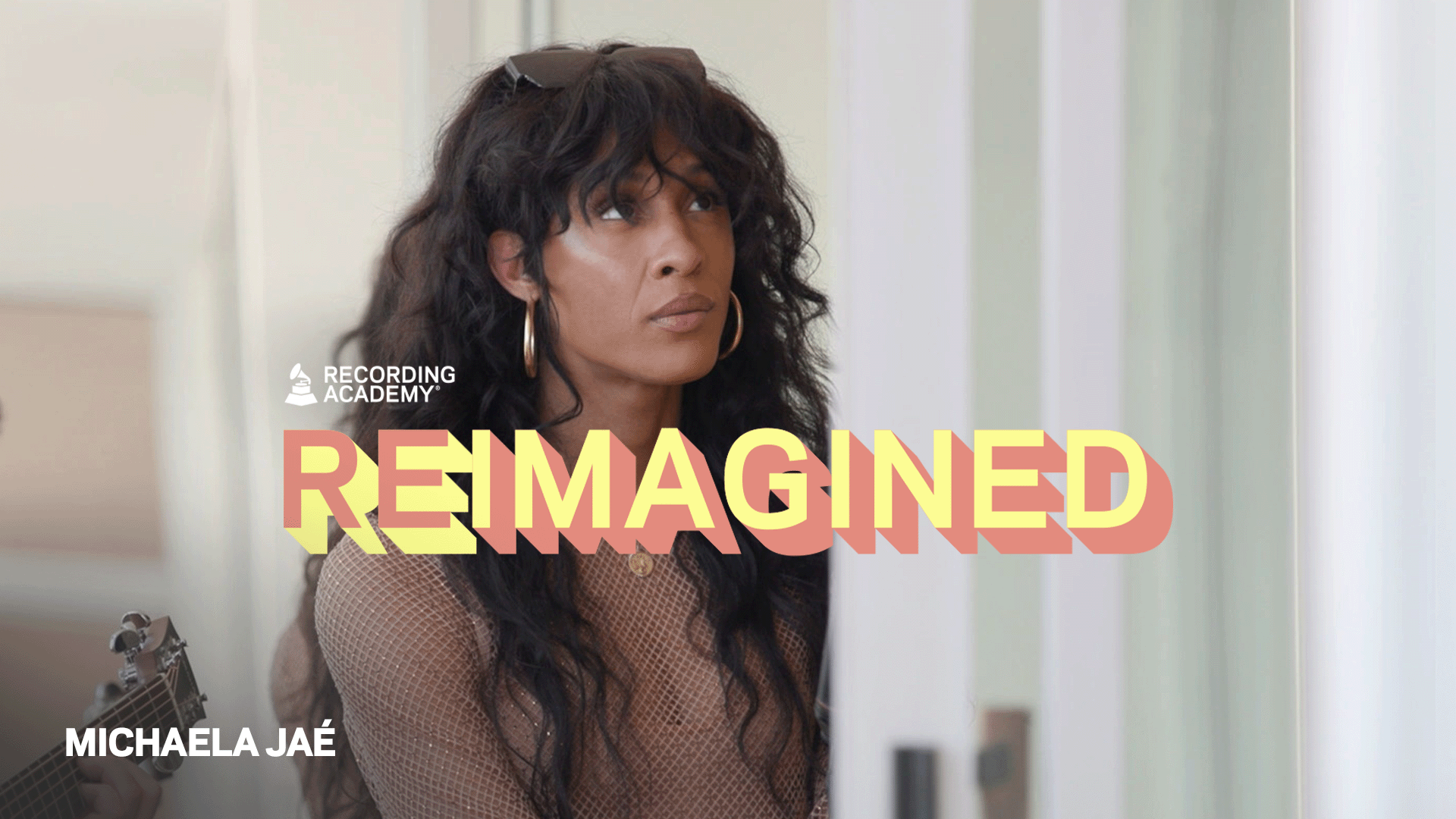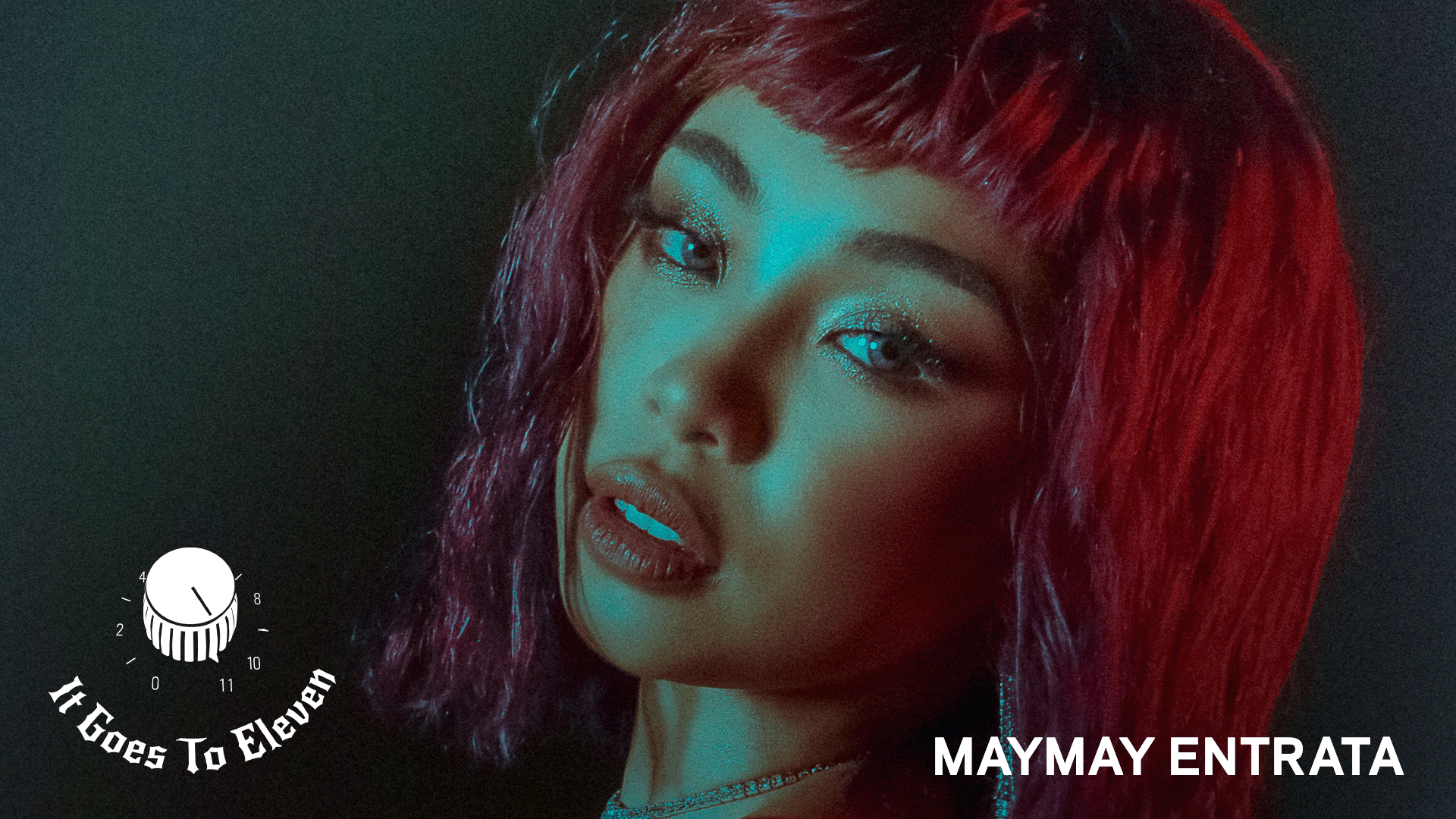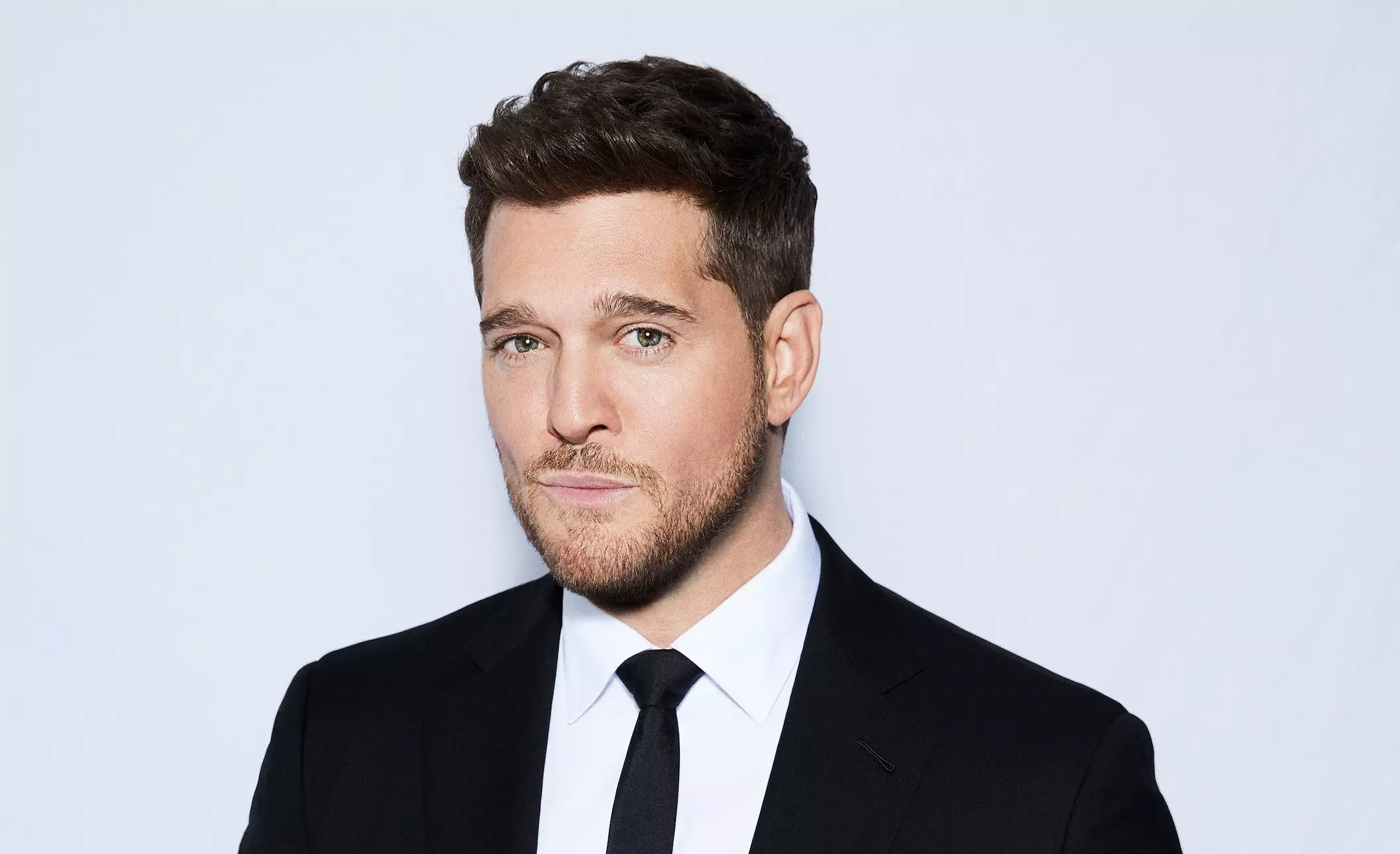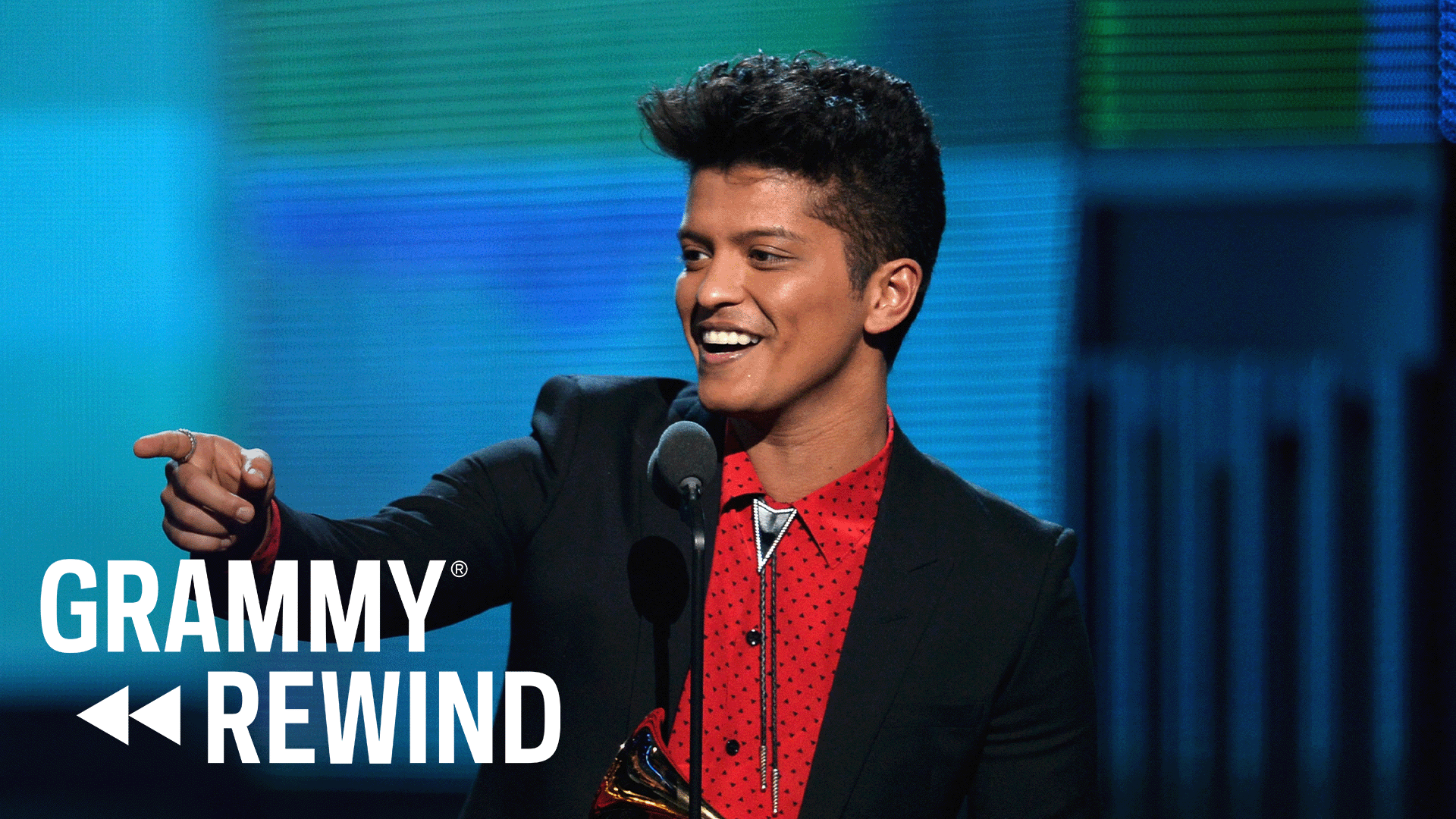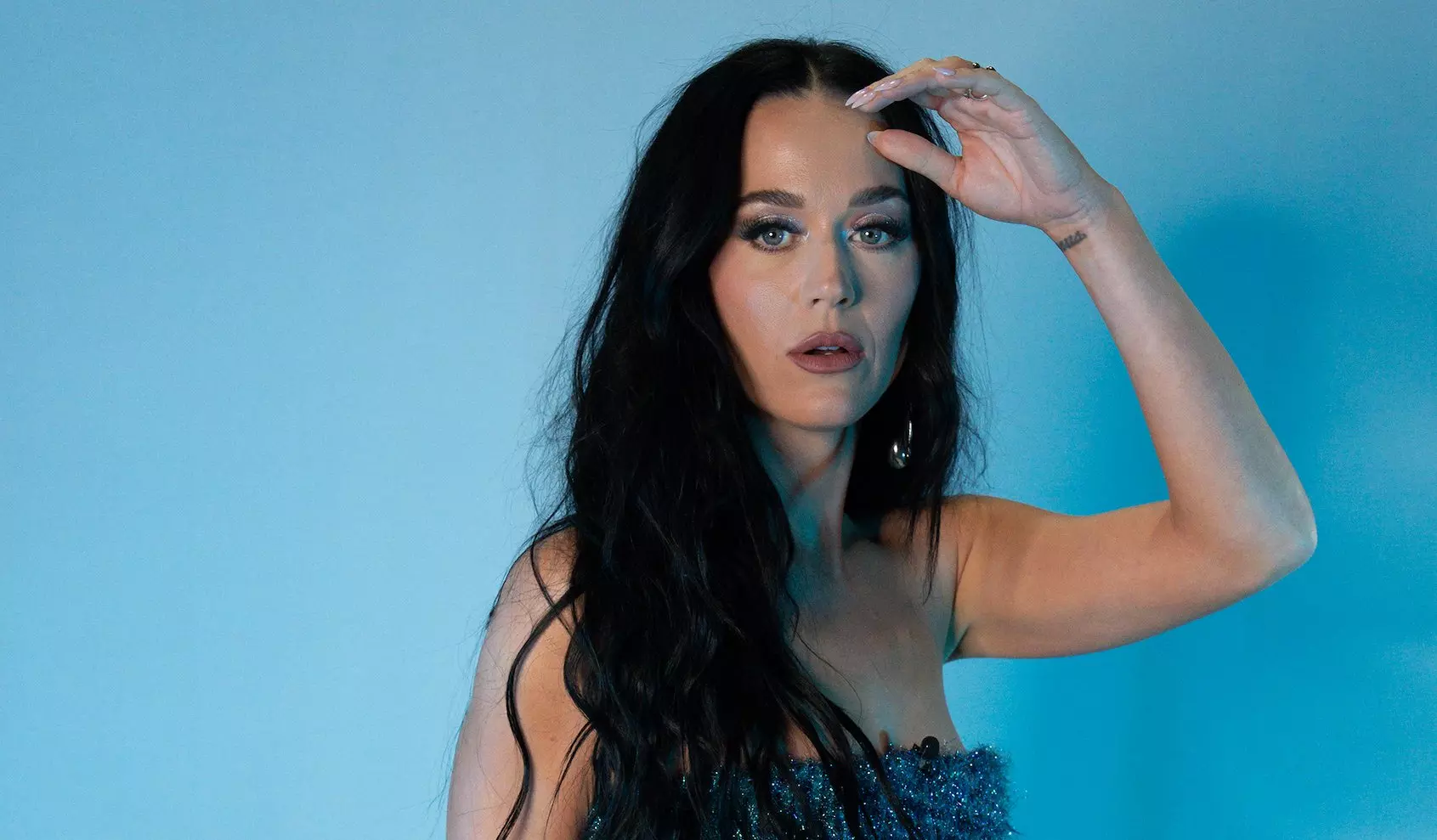Photo by Danielle Neu
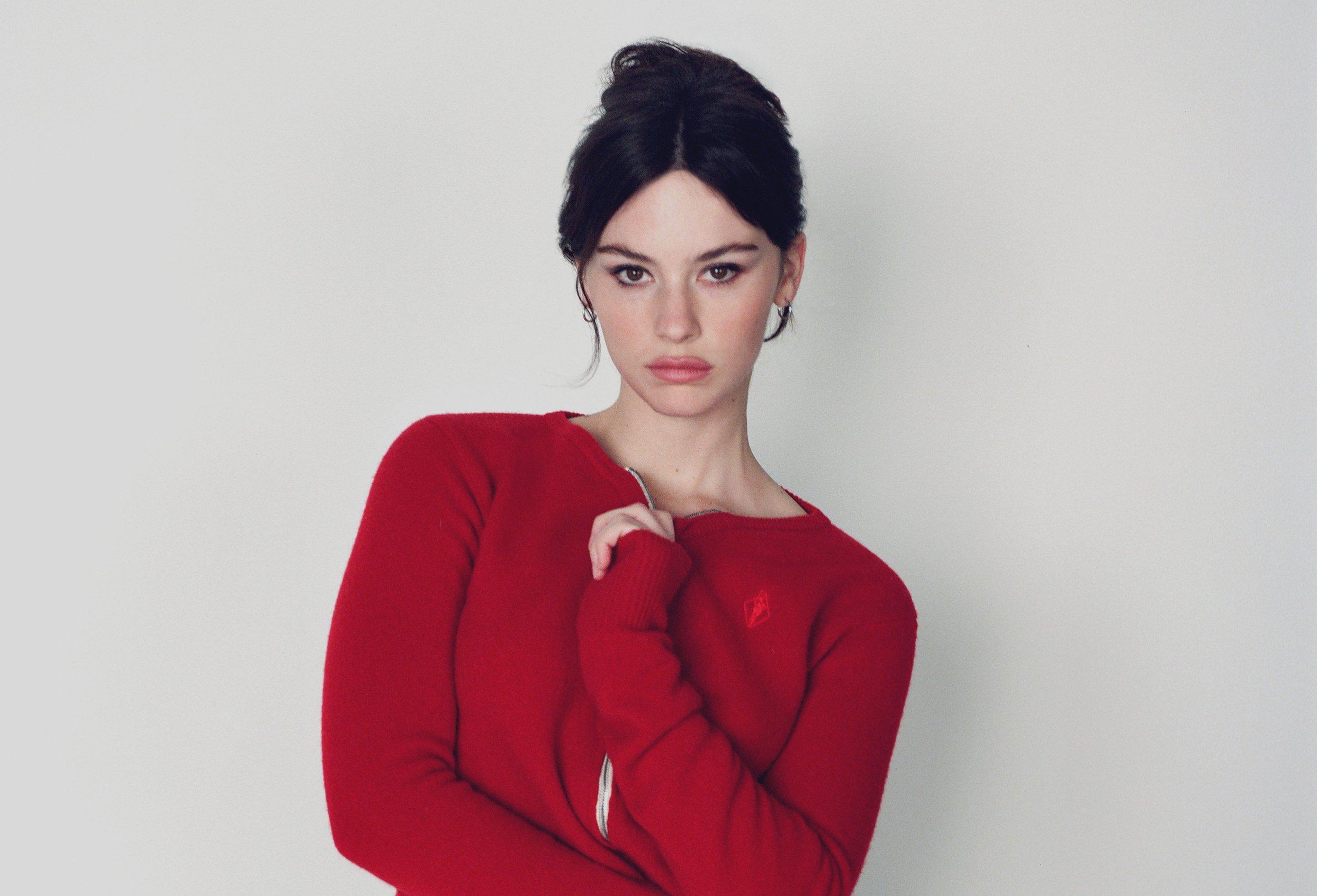
feature
How Making 'Good Riddance' Helped Gracie Abrams Surrender To Change And Lean Into The Present
While working on her debut album ahead of touring with Taylor Swift, the 23-year-old singer/songwriter not only tapped into a curiosity about growing up, but learned how to trust herself more.
There's a mesmerizing delicacy to Gracie Abrams' music. Her breathy, graceful vocals hang over sharply insightful songwriting, compelling you to listen just a little more closely. And once Abrams has your attention, she holds it close to her chest.
On her debut album Good Riddance, out Feb. 24, Abrams knits an ornate helix of homesickness and heartbreak. You can feel the lightning of a love that came out of the blue, and almost hear Abrams' mom on the phone through childhood bedroom walls. Throughout the record, Abrams draws listeners in as she sifts through what ifs and why nots in search of relief.
While her last two EPs — minor (2020) and This Is What It Feels Like (2021) spun bittersweet depictions of half-drunk happy past lovers, Good Riddance confronts her resentment and recklessness. Though the alt-pop album leads with a blurry black-and-white aesthetic, Good Riddance bleeds into the gray areas of right and wrong, of closeness and distance.
"It's funny when albums come out a year after you've written them," Abrams tells GRAMMY.com. "I feel like so much life has happened since then in a really great way. So it's almost like talking about it in hindsight now, but I'm desperately excited for it to belong to everyone else."
It's not easy coming to terms with a rollercoaster of feelings, especially at age 23, and it's even less easy to share them. But after crafting Good Riddance at Long Pond Studios in New York, Abrams credits her close friend and collaborator the National's Aaron Dessner with helping her settle into her vulnerability more comfortably. Her third headlining tour kicks off early this March, and she'll support Taylor Swift's Eras Tour in April alongside Phoebe Bridgers, beabadoobee, HAIM, MUNA, and others.
Before life grew too busy, Abrams logged onto Zoom to chat with GRAMMY.com. Wearing a soft smile and gray sweatshirt, she enjoyed a "super, super caffeinated cappuccino." ("I always get glares when I order it. People are like, 'Is she okay?'" Abrams says. "No.")
As she sipped on four shots of espresso, Gracie Abrams shared intimate details on her album's creative process, why touring is the "best kind of exhaustion" she's ever known, and leaning on her fans' rare "superpower" of being able to make her feel better.
This interview has been edited for length and clarity.
What surprised you most about the creative process for Good Riddance? Or did you feel like the process was similar to other albums'?
No, definitely not remotely similar. I think working with Aaron allowed for so much to come up that I don't think would have for me otherwise. So much of that is because of the trust that he and I share. We have very similar personalities in many ways, and often joke that we share a piece of our brain because certain instincts are so aligned. So to have a space that was so comforting and safe, I was surprised by the ease at which I was able to write about such heavy s—.
I think there was a joy to all of it, even when it hurt really bad to admit feelings through the lyrics. I think I was surprised by how excited I was to go to bed every night so that I could wake up the next morning and do it all over again. All of it felt very different than anything I've done before.
It sounds like it was a cathartic experience for you. I'm really glad he was able to create such a safe space. What's the best piece of advice he's given you?
I think that the biggest takeaway that has been universally applied is to trust myself more. He's made me feel really good at what I bring to the table. And I think that is while also challenging me and pushing me to be the best version.
There's something about that kind of someone — who I admire so much, who is a mentor to me — having confidence in me not just as an artist and a writer, but as a person. He's encouraged me to listen to these internal fire alarms that I think for a while I'd been pushing aside a bit. It's definitely helped enormously.
He's one of my best friends now too. That relationship has been really, really, really massively life-altering. Just because I feel like not only can I call him up and ask him when I'm spiraling about something, how to handle it, he's always like, "well, you already know what you're going to do and trust that, do the thing."
One of my favorite tracks is "Best," which features the titular lyric. Can you tell me more about that song and why you decided to name your debut Good Riddance?
Well, this is the first time that I've made an album where I've been thoughtful about every element, including the tracklist. I think as a songwriter and a storyteller, I'm very invested in the arc of the narrative. So the bookends on the album were very important to me. "Best," which is track one, was one of the more painful songs to write because I think there was a lot that I said in this song that I never even said to the person that it's about. And it feels like a version of an apology in many ways.
And yes, the title comes from a line in that song, and I felt very drawn to what Good Riddance means and feels like when you hear it. I think there's this harsh connotation, that I think is definitely one side of it for sure. But then I also think, in a more kind of conversational offhand way, there's a surrender to change. I feel like there's many elements of the album that consist of me surrendering to change, in having a curiosity about growing up in different ways and what it means to leave certain things behind.
Surrendering to change is such a perfect phrase to describe what the album encapsulates. How do you find yourself coping with change, especially at such a fast-paced time in your life?
I think I'm trying to hold everything a bit more lightly and remind myself that nothing is permanent at all, the good or the bad. Honestly, my experience with touring has allowed me to understand that being a controlling person only makes everything harder.
There's so many unpredictable elements, and you have to be really down to go with the flow and be open to last minute adjustments across the board in order to have the best time. That's something that my tour manager, Mackenzie Dunster, the sickest person of all time, she's like a big sister to me [taught me]. She is very much the person that… [gave me the] understanding that the only thing that you can control is yourself.
When talking about change in general, I try to consciously have more of a softness now than I have in the past towards myself, but also what other people may be going through at any given time, spoken and unspoken. Trying to just be more understanding and less rigid has allowed for more ease when going through these greater transitions. But I definitely am no expert. Especially at 23, I also try to constantly remind myself of how little I know about everything. So I hope I continue to get better at going with the flow.
Navigating your twenties can be so tricky, but it sounds like you have a wonderful support system. What would you go back and tell the Gracie that made minor?
I would say so many things. I think mostly get off your phone a lot. I think I would urge myself from back then to remember what is real and what is not real. That was the year before my worst anxiety ever, so I think I would also whisper little tools into my ear about how to deal a bit better in healthier ways and things.
But that being said, I also do feel very grateful for having gone through the things that I did at that time. And I wouldn't change them, but I do think it's awful. When I think back on the amount of time I spent on my phone, or looking for validation, or posting about feelings, [I want to tell myself] just shut your mouth and go to sleep. You know what I mean?
You've been in the music release, tour, music release, tour pattern for a while. Do you feel like you're going with the flow now, and you're more used to it?
I feel really thrilled to get back on the road, especially for [my] headline [tour] being the first tour this year. It feels comforting. I feel so excited to be back in rooms with people that are nice enough to show up and be vulnerable with their feelings, and reciprocate in that way.
It also is such a significant reminder of what I feel we all were lacking over the past few years in having that sense of community in a room and being okay, being emotional with strangers. It's so specific, and… I haven't found it can be replicated elsewhere.
So I've missed it dearly. And I think knowing that I am capable of doing it is very helpful going into this year. Especially with the Taylor tour too, the scale is so extreme and so wildly different from anything I even had the imagination for. I truly can't wait. But definitely, I feel a greater sense of calm than I did before.
What's been one of your favorite tour experiences or fan attractions? I'm sure you have a lot to pick from.
It's just so lucky and it's so fun to remember all of it. All I can speak to is my relationship with my listeners, but I feel like we have such a close relationship. It literally feels like friendship first to me. Every time I meet someone and have even a quick conversation, we're like, oh, "this is my username and X, Y, Z." Immediately, I'm like, "oh, we've talked before a billion times, or you sent me this meme on this day, and I really needed it" because I felt sad. Or reading letters from my audience when I'm really far away from home and feeling immediately cured of all homesickness.
There's this weird superpower that I feel they have, that again, is just such a rare thing. It makes me so grateful and just is a constant reminder of how giving they are with their time and energy and experiences. To share with me anything at all also makes me feel way more down to share about my life.
But I think it's funny too, with these songs on this album, a lot of them are very explicit and it's also very raw still. And I think I'm still navigating how to have a job that is so intertwined with my personal life and how to protect my energy and my privacy, while also wanting to be open and vulnerable.
I've been spending a lot less time on social media recently because it has been better for my head. Especially with tour coming up, what feels real to me is the in-person interactions [rather than what comes] up online that feels destructive or distracting. When I think about this as an album that I don't want to be giving much added context to, I think I'm really more interested in hearing from everybody else [about] how it makes them feel. I think I also want to just keep some parts of it for me.
How do you remind yourself to stay present?
Well, every time I've felt like I've been on stage and I'm thinking about something else by accident, the show is worse in my mind. I remind myself to stay present because I have the best time when I'm exactly where I am. And I think the easiest way to do that is to make real, direct eye contact with someone in the audience and just lock in for a minute.
I think there is a softness and a sensitivity to the audience that [enables me to] feel more okay to show up as I am on any given day. And I've definitely had certain shows where I'm like, "can we all just take a group breath for a second?" And sometimes I do that when I am having some weird wave of a feeling, or an anxiety or something creeps into my head, I do try to recalibrate in real time. Just having little practices along the way to try to be as present as possible is really helpful.
But I'm also aware that there's so many of these places, for example, I've never been to, and there's so much to explore and to really be excited about — especially on days that you're extra tired, or really homesick, or feel super far away from everyone, or haven't seen your dog in months or whatever it is. The luckiest thing in the world is to be able to write these songs and then perform them, and then meet people through that and connect. That's real and so lucky. So lots of gratitude all the time.
Since you're touring with Taylor Swift in the next few months, what was it like the first time you met her?
It's like meeting an immediate best friend and also a superhero. You know what I mean? She's like the coolest person of all time. She is the warmest. She makes you feel like family instantly. And to have admired her and her work for my entire life, to also then be able to feel that way on a personal level is such a lucky, cool thing. And she's everything that you would ever hope she would be.
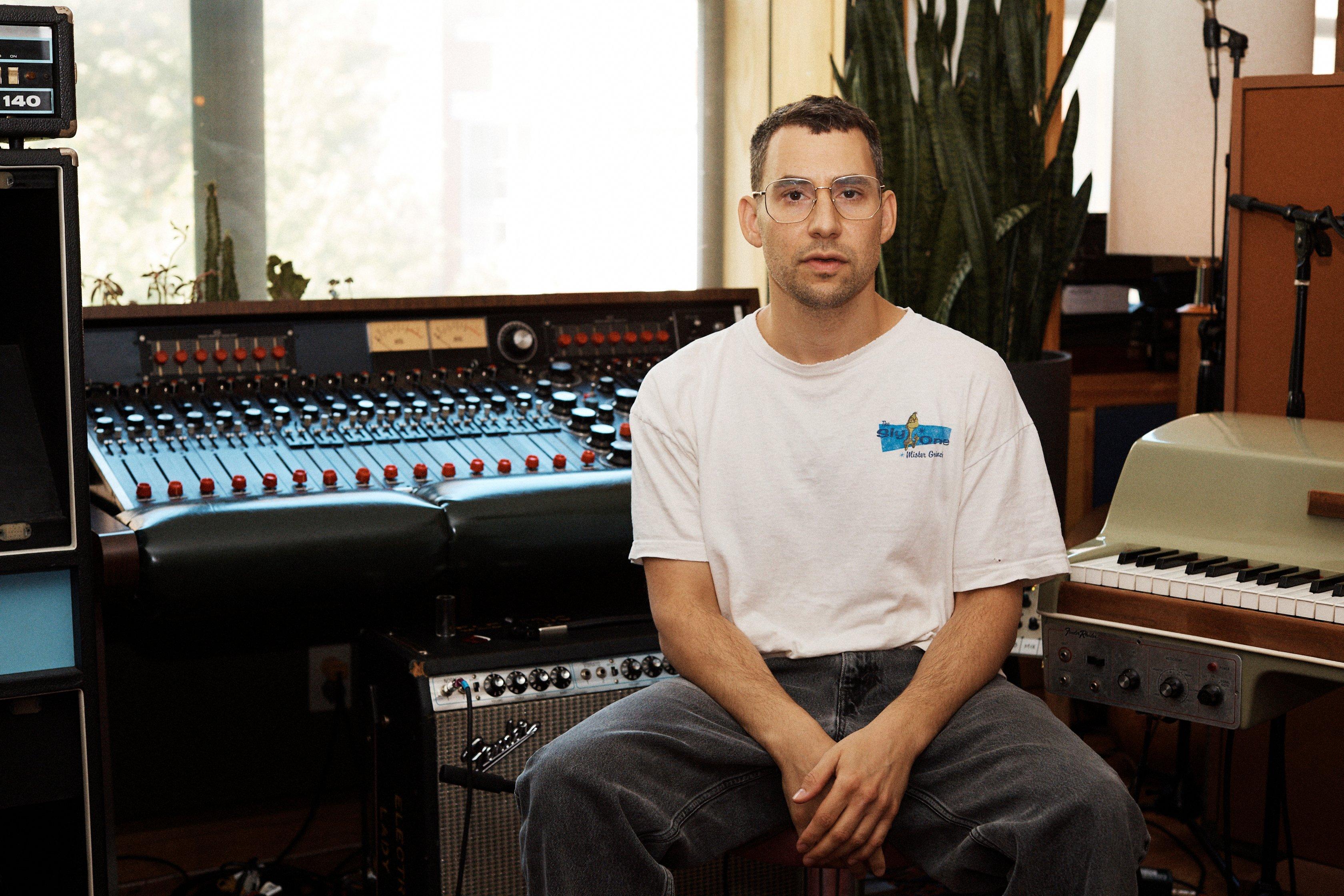
Photo: Alex Lockett
interview
Jack Antonoff's "Grand Desire": Why Working With Taylor Swift, Sabrina Carpenter & Bleachers Is His Dream Creative Playground
Jack Antonoff has a simple wish: to "write and produce things and play live." The GRAMMY-winning producer is living his dream, and discusses his roster of all-star collabs, creating studio vibes, and the importance of looking back.
"I think collaboration boils down to the core belief that something can work," Jack Antonoff recently told GRAMMY.com. "When I make an album with someone, I'm filled with faith that much more in my life or the universe can work, which is definitely a reason why I do this."
The 11-time GRAMMY-winning singer, songwriter and producer has worked with many of the biggest modern pop stars — from Taylor Swift, Lana Del Rey and Lorde, to St. Vincent and Sabrina Carpenter — but his core focus has never changed. Antonoff simply wants to make music he loves with people he loves, and perform it live.
Antonoff not only holds many peoples' dream job of being Swift's go-to collaborator, but he's been having a banner year filled with notable creative projects and big wins. At the 2024 GRAMMYs, he won Producer of the Year, Non-Classical for the third year in a row. He also earned two more GRAMMYs that night, sharing Best Pop Vocal Album and Album Of The Year with Swift for his extensive production work, co-writing and instrumentation on Midnights. In March, he released his fourth album as Bleachers and launched a lengthy world tour with the band, which will wrap with their biggest-ever (sold-out) gig at Madison Square Garden on Oct. 4.
His 2024 production credits include Swift's The Tortured Poets Department, four of breakout star Carpenter's Short n' Sweet tracks including No. 1 hit "Please Please Please," and even one of Kendrick Lamar's Drake diss tracks, "6:16 in LA." He also curated and produced the soundtrack for Apple TV's WWII couture period drama "The New Look," featuring modern renditions of classics by Lana Del Rey, Florence Welch, Nick Cave and others. He was also tapped by Tony-winning director Sam Gold to create the soundtrack for a modern reimagining of "Romeo and Juliet," debuting on Broadway later this month.
Before Antonoff became one of the most in-demand producers in pop, he spent his time in bands. As a high school senior in 2002, he formed indie rock outfit Steel Train with several classmates, who'd have a decade-long run playing big festivals including Bonnaroo, SXSW, Warped Tour and Lollapalooza. Afterwards, he played guitar in the power pop trio fun. with whom he earned his first six GRAMMY nods and won his first two in 2013, for Best New Artist and Song of the Year for their anthemic hit "We Are Young" featuring Janelle Monáe.
2013 was a pivotal year for the "Tiny Moves" artist, as it also marked his first time he worked with Swift, who then enlisted him to support her transition away from country music on Album Of The Year winner 1989. Antonoff has said that she was the first artist to trust him as a producer, and that their work together, understandably, opened many other doors for him.
GRAMMY.com recently caught up with the prolific producer and artist for a dive deep into his collaborative magic, the latest Bleachers album, and why he thinks pop is whatever you want it to be.
This interview has been edited and condensed.
There's a lot to talk about just from this year, it's pretty crazy.
When the Bleachers album came out and I was starting to do interviews, I had this really weird experience. Interviews recap things that have happened, so [they make me] realize how little I think about the past. I don't know if that's a good or bad thing.
I think it's a symptom of how much my life is future-focused — which is something I really like and fear about my life at the same time. The studio is such a forward place. You're thinking about the next thing, how to find this next feeling in literal and esoteric ways. [Being on] the road is one of the most literally forward places — every day you're somewhere new and you're thinking about the next day and the tour.
I feel like I'm trapped in the future. It's nice and I've designed it that way. But sometimes I get a little scattered or emotional when I talk about things that have happened because I'm thinking about them for the first time. I don't have canned answers.
You're often called a super-producer, which is valid; you've worked with so many big artists and on so much music that everyone hears. But what are you desiring as an artist and a producer lately?
The grand desire that I have has never changed, because it's so much bigger than any amount of success. That desire is to write and produce things and play live. That's a big part of why I love this work so much is because nothing can really help you with that besides your soul. You could be in the most expensive studio in the world with all the best engineers, but there's no proof that [that setting] equals a better song than just sitting in your room.
That fleeting feeling of knowing that it comes and it goes, and you just have to be there to grab it, is such a deep connected-to-the-cosmos feeling.
When you're working on music, at what point do you get excited about a song or know that it's going in the right direction?
When it does happen is when I start to push it forward in a real way. There's an amazing amount of f—king around in search of that feeling, and you never know where you're going to get it. It's sometimes just moving around instruments or lyrics or thoughts with no direction until one thing feels exciting, and then you follow that thing.
It's a really fun process, and it can be anxiety-producing. It's a different kind of fun when you do it with someone else, because you're on this weird adventure together. When you're in a room with other people and everyone has that feeling off of one idea or one sound, it's a very connecting feeling.
When you're working on your own music, particularly with Bleachers, it's mostly just you in the studio, right?
Yes. But the Bleachers process is oddly similar [to my producing], just sort of flipped. I work with producers on Bleachers because I need it sometimes. I've always had these two sides of writing my music and having my own band and needing help with that in various ways. I've learned so much on either side.
Being on the road with Bleachers, remarkably, keeps me connected to everything that matters the most when I'm making records with other artists because I can very easily visualize real fans, the people who live and die by this music. To be acquainted with them every night is a very powerful experience. It always just reminds me who I'm in conversation with, because I think it's easier than ever to get lost.
You've had a busy summer on the road with the Bleachers. How has it felt performing this album live?
It's really my favorite ever. It's the first album I've made with Bleachers that feels like a response to this thing that happens at the shows. Somewhere during the Take the Sadness Out of Saturday Night [tour in 2021], the shows got really crazy and loose and kind of off the wall. There was something about it where I was kinda like, Okay, you want to play chicken? [Laughs.] I went into the studio and I tried to one up them. I never felt that before. This time I was talking right at [my fans], which is a luxury of being known by them.**
The first song we ever released was "I Wanna Get Better," which is almost a Wikipedia page of my life, it rattles through everything I'm going to be talking about [forever]. It feels like now I can wax on about something, and they know what I'm talking about.
Is that why you decided to self-title this album?
The actual decision to self-title is a gut feeling. But the real reason is it felt like an earned moment, like we had arrived somewhere where everything had completely formed.
Every reference point [while] making this album became about our own history and our own mythology. In the past, I would have said, Make it like a Mick Fleetwood or Ringo kind of feel. Now the reference point would be Play it like you do at this point in the set when the wheels have blown out for you. You tour and spend enough time with people where it becomes almost like conversations with your best friends, the reference points become your own shared history.
What called you back into the studio to make your own music?
I never know. My life is a lot less structured than people would think. The way I make Bleachers records — and even in everything I make with other people — there's a real looseness to it because I like to be [in the studio] when I feel incredibly excited to be there. I schedule things, just not terribly far out.
For example, Lana and I or Taylor and I have never once been like, "Let's book out a month here." It's sort of like, "What are you doing today? I got this idea, come over." And then if that's feeling good, it's like, "What are you doing tomorrow? Let's keep this going." It's very [much] catching it when it's happening. Some days I'm in the studio for an hour, some days for 16 hours; it's all based on how I feel.
Are you always working on music or ideas — is there always something that's coming out of you?
Lately — the past couple years — I've been feeling the need to create a lot. I feel connected to something, and I feel a lot of joy and that good buzzy anxiety of having these ideas and wanting to hear them, which reminds me of my earliest memories of writing and producing music. When you hear the thing in reality — you can press play on a thing that was a thought — it's the most incredible experience.
"Alma Mater" is such a poetic way to refer to an ex. How did that track come together? Did you have Lana del Rey in mind for it?
No, we were just f—ing around. I think a lot about where you put people [when listening to a song]. On that song, I wanted to put you in a room with me and her, so I left a lot of the elements of us being in the room writing it, messing around. We kept singing back and forth like, "She's my alma mater, f— Balenciaga." [Chuckles.] The lyrics were just making us smile.
As it started to come together, this idea of referring to an old relationship as an alma mater, that excited me and made me want to write that story. That's kind of what an old relationship is: a school that you go to where there's a whole set of friends, and a whole culture, and when it's over, poof, it's gone.
Obviously, you worked with Sabrina Carpenter on some of her new music…
How brilliant is she?
Read more: How Sabrina Carpenter Became A Pop Queen: Tracing Her Journey To 'Short N' Sweet'
She's around the same age Taylor Swift was when you started working with her. Do you see any parallels with Sabrina where Taylor was at then? Sabrina has said it was a really big deal to get to work with you. What was it like working with her?
It was a big deal for me to get to work with her. The great parallel is brilliant writing and being able to write about one's life in the most vulnerable and powerful way. It sounds so simple, but it's the rarest thing to be able to write about your life and to be able to make it so specific and also so poetic. You know it as soon as you hear it.
Can you talk a little bit about the sonic landscape on "Please Please Please"?
We were thinking a lot about joy and the kind of fantastical nature of ABBA, Dolly [Parton] and ELO that I felt would fit her voice and lyrics so well. She [does] this quick vacillation between really cheeky then really emotional, back to really sarcastic, and then she smacks you over the head with something so serious and real that you're stunned. It's my favorite kind of music.
One of the reasons it's so thrilling to me that so many people have responded to it is because it doesn't sound like anything that's going on at all, it almost sounds like the opposite of everything going on. Those are my favorite moments; when something out of left field grabs everyone's attention.
Those bubbly sounds right when "Please Please Please" comes in are not in time. You have a LinnDrum ['80s drum machine] and a live drum playing this tight beat and these country-picking acoustic guitars. Then you have these wobbling synths that, in my head, I'm playing the same way someone would play it when it was first invented because you're just playing along to the track, you're not locking it to any MIDI or anything. I was thinking a lot about that time period — I think about [it] all the time — when I was with Sabrina.
How has your creative partnership with Taylor Swift and your trust in each other evolved in the decade-plus you've been working together? And what has been the coolest thing for you to see in your ongoing work?
As far as evolution, we just have our own language. I saw her play last night [at Wembley Stadium in London], and actually played some songs there too. Most of the time when we work it's just her and I in a room, usually my apartment or Electric Lady [Studios]. To see [the songs] in literally the biggest spaces and retain all of [their] importance and soul and feeling like it's that for every single person in that crowd, it's like the absolute coolest.
She's the absolute greatest of all time, with a never-ending hunger to push forward.
You and Taylor both have such an affinity for witty, nerdy, literary references, and poetic phrasing. How do you pull that out in a way that makes sense in a pop song structure?
I think that tendency is just inherent in both of us. But I think the concept of pop structure is whatever the hell we want it to be. The worst of pop music is ambulance-chasing. The real inspiration is to be your own loud light-up machine shooting down the street. The things I've loved about pop music have just invigorated me to believe that pop music is whatever the hell the person making it says it is, and then everyone else gets to argue if it is or isn't.
I don't sit around and think about genre, placement, or who they're going to satisfy. All those thoughts are not just the death of making things. It's pretty easy for me to only consider that gut feeling. I'm just fascinated by how people hear things. There's no genre of music that I think is better or worse than any other one.
What can you tell us about the upcoming Romeo + Juliet Broadway show you soundtracked? Was it a different creative exercise for you to score such a well-known text; how so?
It was a very different process which is exactly why I wanted to do it. Credit to [director] Sam Gold who really let me fly out to left field and back. I'm about 50 percent through it and I'm going to finish it when I'm home from this tour. It's been something that has opened my world in many ways, to a whole new side of scoring and writing for a musical.
You have a lot of GRAMMYs, 11 of them —
People always ask me if it gets normal. No, it doesn't get normal! It's crazy.
One, where do you keep them?
That's one thing I've never really figured out, they kind of move around. Everything in my life moves around a lot, so I don't have a satisfying answer for that one.
And going back to 2013 when you won your first GRAMMYs with fun., how did you feel that day?
F—ing shocked. As I was saying, I don't really sit around thinking about the past because it's the opposite of the job. What's so shocking about those moments is you're surrounded by family and the people you love and work with, and it's this huge moment to think about how you got to that point.
My biggest takeaway of these experiences that force you to stop and think about the road behind is just how heavy they are. All of us are held up by really special people, whether it's partners or parents or siblings, fans, engineers, managers, loved ones. If you have amazing people around you, it's the best feeling in the world. That's my favorite part about any award, it feels like it's for everyone that got you there.
The Latest Pop Music News & Releases
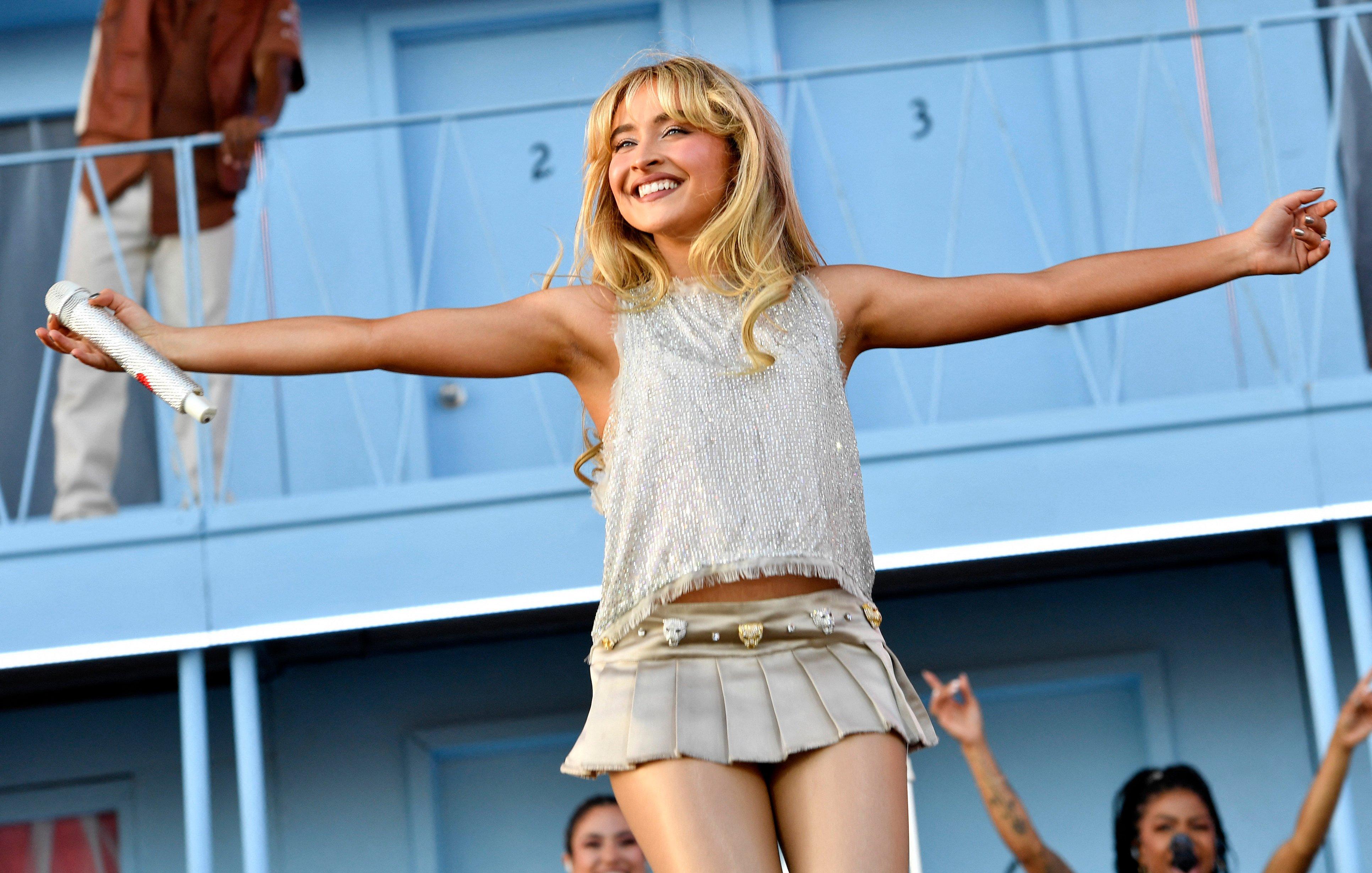
Photo: ALERIE MACON / AFP via Getty Images
feature
How Sabrina Carpenter Became A Pop Queen: Tracing Her Journey To 'Short N' Sweet'
More than a decade in the making, Sabrina Carpenter is living out her superstar dreams. As she releases her new album, 'Short n' Sweet,' look back on the chart-topping star's journey and how every venture helped her evolve into a pop phenom.
Sabrina Carpenter is the first to admit that it's taken her a bit of time to find her way to the top of the music industry. She even likens herself to the tortoise in the fable "The Tortoise and the Hare" — even if she didn't want to believe the metaphor growing up.
"Something that my mom always said to me as a little girl that really annoyed me was that I am the tortoise… throughout my life, [I was] being told, 'Sabrina, you're the tortoise, just chill,'" Carpenter recalled while accepting the Variety Hitmakers Rising Artist Award in December 2023. "In moments of frustration and confusion it can feel like a letdown, but it turns out it's actually a very good thing."
It's been a very good thing for Carpenter, indeed. A decade since the release of her debut single, the singer/songwriter isn't just breaking through — she's one of pop's new reigning queens. Over the last year, Carpenter has nabbed her first No. 1 song on the Billboard Hot 100, made a stellar debut at Coachella, and performed on "Saturday Night Live," all the while racking up billions of streams on her music new and old. It's all built excitement for one of the most anticipated pop albums of the summer: Short n' Sweet.
As Carpenter unveils her new album, take a deep dive into her decade-long journey to pop stardom.
Getting Started: Disney Breakthrough
Growing up, Carpenter filled the sounds of her family home in Pennsylvania with covers of songs like Adele's "Set Fire To The Rain" and "Picture to Burn" by future Eras Tour companion Taylor Swift (more on that later). After submitting videos for a singing contest spearheaded by Miley Cyrus, Carpenter would get her first taste of success. Placing third, she caught the eye of Hollywood Records, who signed her following the competition.
Simultaneously, Carpenter also began pursuing acting, landing guest spots on series like "Law & Order: Special Victims Unit" in 2011 and joining "The Goodwin Games" in 2012. In 2014, she landed a lead role in the Disney Channel series "Girl Meets World," a spin-off of the beloved '90s series "Boy Meets World," which served as a breakthrough moment for the burgeoning star — and a catalyst for her music career.
Just before the show debuted, Carpenter released her debut single, "Can't Blame A Girl for Trying," the title track to her debut EP that arrived a month later. While the four-track EP was the typical output of a teenage Disney star — bubblegum pop sounds with digestible, family-friendly lyricism — it showed off her youthful timbre and offered themes that would become prevalent later in Carpenter's songwriting: love, heartache, and navigating life.
A year later, she released her debut album, Eyes Wide Open. A mix of pop with folk and country influences — a soundscape that remains on Short n' Sweet — Carpenter's debut showed maturity and growth following Can't Blame A Girl For Trying; songs like "Eyes Wide Open" and "We'll Be the Stars" showed a more introspective side, reflecting on the pressures of being in the spotlight and the journey of finding her identity. Eyes Wide Open also hinted that Carpenter was beginning to hone her songwriting skills, penning four of the 12 tracks.
It would be on her 2016 sophomore album, EVOLution, where Carpenter would find confidence as a songwriter, co-writing all but one song on the 10-track project. In turn, the lyrics reflected her growing sense of self and a new perspective on past themes, like embracing non-romantic forms of love in "All We Have is Love," being there for a struggling friend in "Shadows," and learning to assert boundaries in "Space."
EVOLution transitioned Carpenter out of the teen pop aesthetic into a more sophisticated sound, experimenting with dance-pop and techno sonics. Genre versatility would become a throughline of sorts for Carpenter, and EVOLution foreshadowed the multifaceted musicality that was to come.
Shedding Disney: From Child Actor To Pop Star
After "Girl Meets World" came to an end at the beginning of 2017, Carpenter was ready for reinvention. Much like Britney Spears' Britney and Cyrus' Can't Be Tamed before her, as Carpenter grew into an adult, she felt like she needed to shed the Disney-fied image that has become a rite of passage for teen stars. Thus began the Singular era.
Released in 2018 and 2019, respectively, Singular: Act I and Singular: Act II featured songs that were more risqué and mature in nature. A far cry from her tamer work of the past, the R&B track "Hold Tight" is equal parts sultry and evocative with Carpenter singing, "Wanna keep you in, wanna keep you in right/ Wanna feel your skin, wanna feel it on mine."
As she noted in an interview with Billboard, Singular: Act I was a natural progression for a girl now in her late teens — even if it was against the squeaky-clean image of her beginnings.
"I was known as a fictional character on television with lines that were written for her with an attitude that was portrayed in a way by other people. So for a lot of people, their first impression of me was as a 13-year-old girl [singing] the kinds of songs that she should be singing," she said. "Then, flash forward to 19, and people are asking why I am not singing about the same things that I did when I was 13, as if that's normal."
One of the more notable Singular tracks is from Act I, "Sue Me." Sneakily disguised as a story about a romantic relationship, the song is Carpenter's response to being sued by her ex music managers: "That's my shape, I made the shadow/ That's my name, don't wear it out though/ Feelin' myself can't be illegal." Its tongue-in-cheek and snarky nature would inevitably embolden Carpenter to continue writing more confessional songs with attitude, whether she's responding to media scrutiny in "because i liked a boy" from 2022's emails i can't send, or warning a suitor to be careful in Short n' Sweet's "Please, Please, Please."
Singular: Act I and Act II further helped demonstrate different facets of Carpenter's musicality, with the former leaning into pop tendencies and the latter embracing an R&B flair. And as her final albums with Hollywood Records, she used Singular: Act I and Act II to indicate that she wasn't going to let any sort of previous perceptions hold her back. Their coming-of-age themes showcased Carpenter as an artist coming into her own — regardless of whether listeners wanted to keep her in the Disney box or not.
Reintroducing Herself: Artistic Authenticity & The "Nonsense" Effect
While the world was going through a period of change amid the COVID-19 pandemic, so was Carpenter. She signed with Universal Music Group's Island Records in 2021, and soon she would be able to fully introduce the world to who Sabrina Carpenter is as an artist.
As she noted herself to Variety earlier this year, her 2022 LP, emails i can't send, "marked the beginning of a really freeing and artistic time for me." Once again, she co-wrote every song on the album; this time, though, she only had one co-writer for each track, and even wrote two songs solo ("emails i can't send" and "how many things") — proving that she was more assured as a songwriter than ever.
As a result, Carpenter's knack for confessional songwriting is on full display. emails i can't send represents a reflective time capsule of sorts; one that brings the curiosity of her earlier work with the perspective and wisdom of a young adult. Her growing fame meant there was more attention on her personal life, and emails i can't send allowed her to reclaim her narrative and express her side of the story.
Carpenter's candidness struck a chord with listeners, and upon the release of emails i can't send in July 2022, it was clear Carpenter was on a new trajectory. The album debuted at No. 23 on the Billboard 200, which marked her highest entry on the chart to date (as of press time); the 2022 stretch of her Emails I Can't Send Tour sold out in less than a day. And once "Nonsense" was released as a single that November, her place as a rapidly rising star was solidified.
"Nonsense" was initially written as a means to an end after Carpenter was writing a sad song and had writer's block. Now, the track is the epitome of Carpenter's lyricism, weaving together her wit and humor with an infectious hook. First gaining traction on TikTok because of its catchiness, it's become a beloved part of Carpenter's canon thanks to her inventive and bespoke outros during her live shows. It's since become a tradition for fans to check to see what outro she created for each performance, adding to the fan fervor.
Carpenter further satiated fans' taste for her cheeky lyricism in March 2023, when she released emails i can't send fwd:, the deluxe version of her album, which featured a new track called "Feather." She took the playful, flirting energy of "Nonsense" and infused "Feather" with buoyant, airy production that mimics the feeling of self-liberation after moving on from a relationship. Earning Carpenter her first pop radio No. 1, "Feather" proved that the singer's audacious style was taking hold — and it set the stage for an even bigger 2024.
Becoming A Superstar: Eras Tour, "Espresso" & Beyond
After her own extensive — and very sold out — tour in support of Emails I Can't Send, Carpenter's rising star status was further confirmed by pop's current queen, Taylor Swift. The singer earned a coveted opening slot on Swift's monumental Eras Tour in Mexico, South America, Australia, and Asia.
Just after her last Eras Tour show in March 2024, Carpenter hinted that her own new era was beginning. "I'm starting to feel like I've outgrown the songs I'm singing," she admitted to Cosmopolitan, "which is always an exciting feeling because I think that means the next chapter is right around the corner."
That chapter began with "Espresso," which dropped a day before her debut Coachella performance. Doubling down on the playful, self-assured vibe of "Nonsense," the song immediately hinted that big things were coming for Carpenter, debuting at No. 7 on the Billboard Hot 100, where it peaked at No. 3.
Upon announcing her sixth album, Short n' Sweet, Carpenter released "Please Please Please." Combining her now-signature playful, carefree lyricism with an airy, disco-tinged sound, "Please Please Please" didn't just present Carpenter as a confident superstar — it became her first Hot 100-topping smash.
Carpenter has referred to Short n' Sweet as the "hot older sister" of emails i can't send. "It's my second 'big girl' album; it's a companion but it's not the same," she explained to Variety, to whom she also admitted she feels a "sense of separation" from her work prior to emails. "When it comes to having full creative control and being a full-fledged adult, I would consider this a sophomore album."
It's apt, then, that her Short n' Sweet collaborators — including songwriters Julia Michaels, Amy Allen and Steph Jones — are largely the same as the team from emails i can't send. "I've really honed in on the people that I love making music with," she told Rolling Stone in June.
Even more telling of the direction she's heading is her work with one of pop's hottest producers — and Swift's right-hand man — Jack Antonoff, for the first time. At a GRAMMY Museum event with Antonoff himself, Carpenter debuted the country-infused "Slim Pickins," presenting yet another pop style from Short n' Sweet. And as "Slim Pickins," "Espresso" and "Please Please Please" indicate, Carpenter's knack for infectious and edgy lyrics isn't just the throughline across Short n' Sweet — it's become the epitome of both her artistry and her stardom.
Just like her metaphorical friend the tortoise, Carpenter's long but steady journey has clearly paid off. As she's figured out who she is on her own terms, she's manifested the bonafide superstardom she's always imagined.
"I never had the plan B, and it wasn't even a thought in my mind that it wouldn't work out," she told Rolling Stone. "I just always knew it was about not if it would happen but when it would happen."
For Carpenter, every chapter of her artistry has built on the last; she's refused to rest on her laurels and continuously pursued new directions. She's creating work that wholeheartedly reflects her, and growing a loyal fan base because of it. Her next album might be named Short n' Sweet, but her time as a pop superstar will be anything but.
All Things Sabrina Carpenter

Get To Know Declan McKenna, The British Rocker Shaking Up The Indie Scene
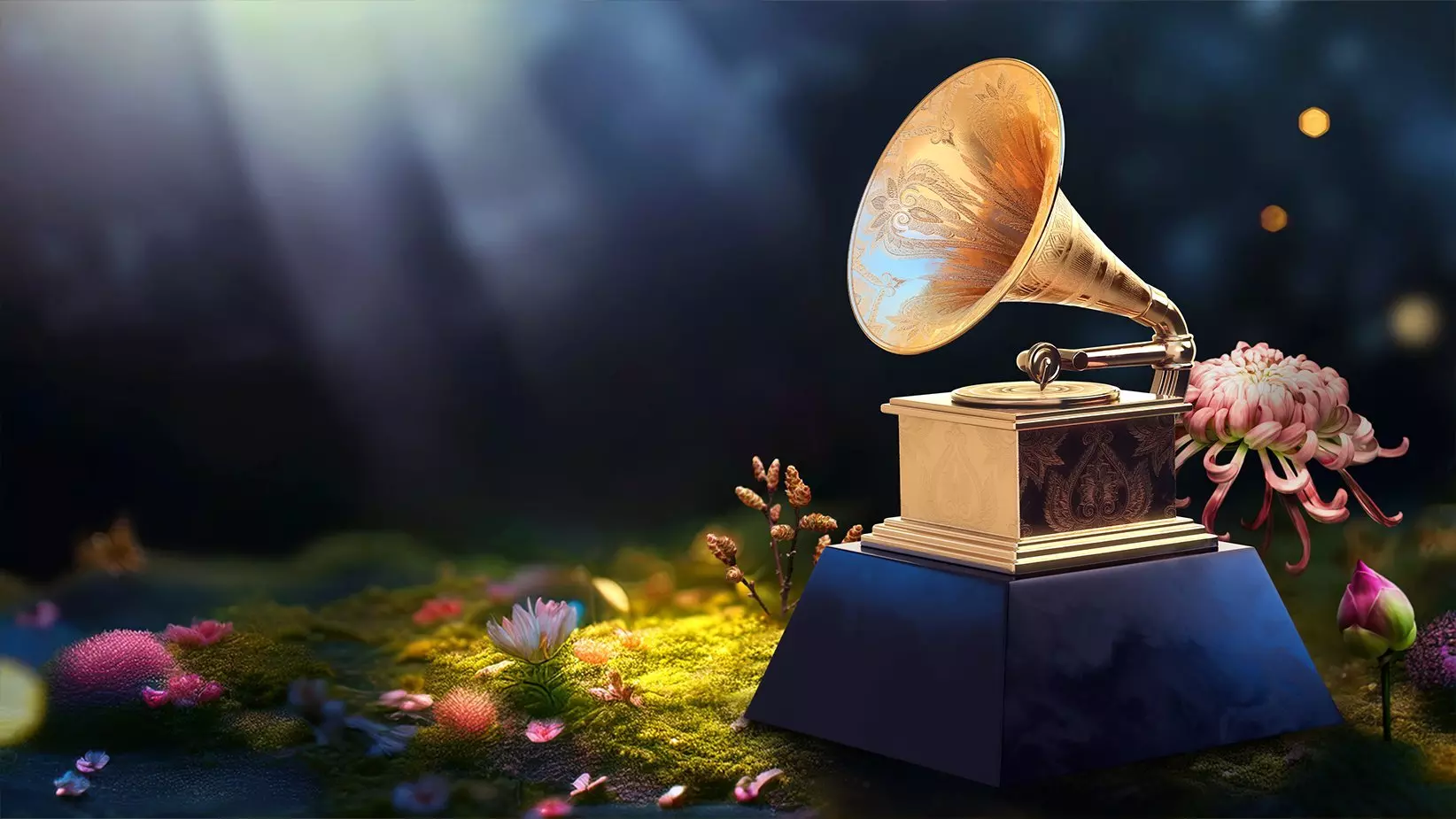
2025 GRAMMY Nominations: See Shaboozey, Anitta, Teddy Swims & More Artists' Reactions

Beyoncé & Taylor Swift Break More GRAMMY Records, Legacy Acts Celebrate Nods & Lots Of Firsts From The 2025 GRAMMY Nominations
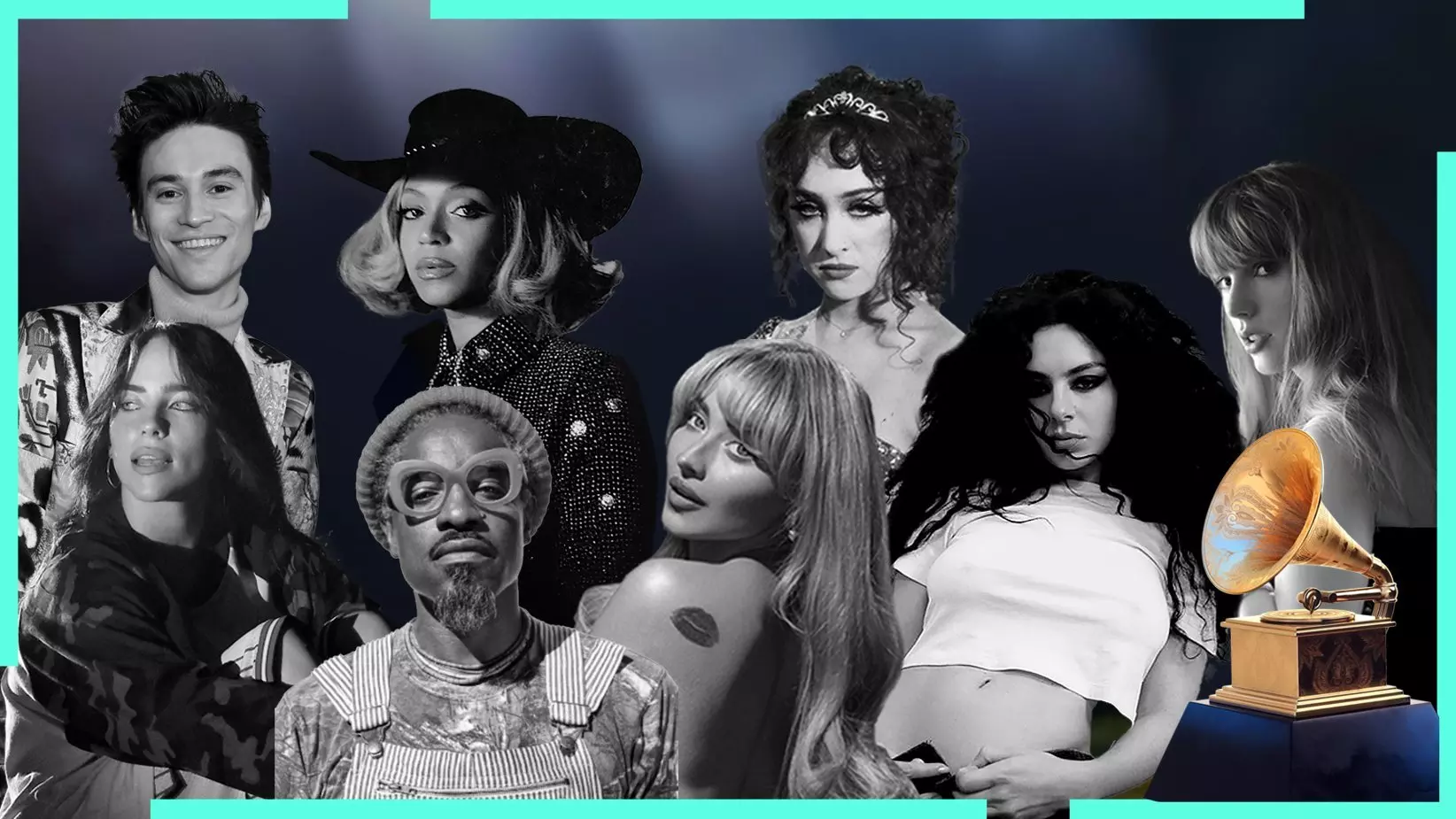
2025 GRAMMYs Nominations: Album Of The Year Nominees
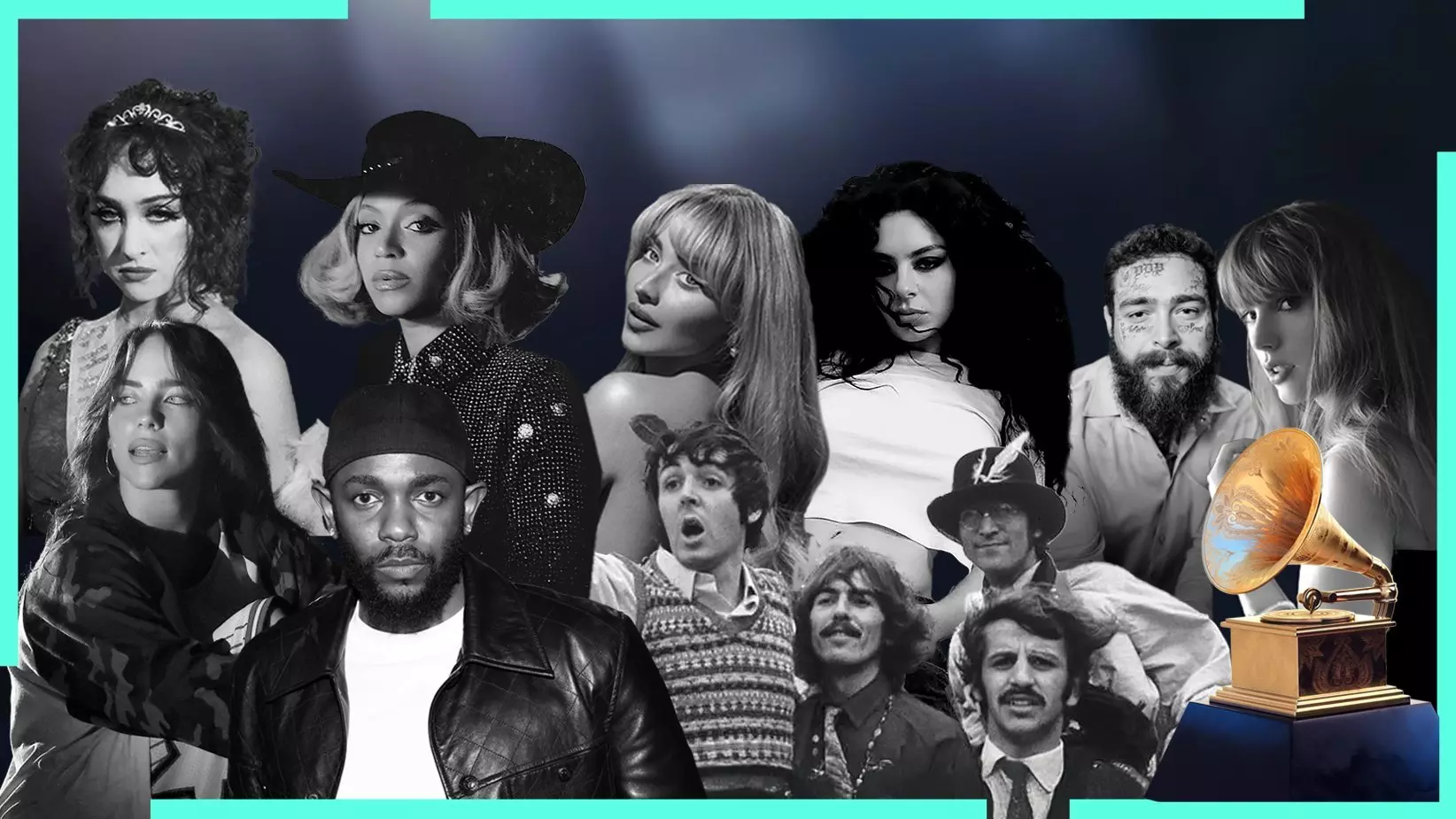
2025 GRAMMYs Nominations: Record Of The Year Nominees

Photo: Jeremy Cowart
interview
Behind Ryan Tedder's Hits: Stories From The Studio With OneRepublic, Beyoncé, Taylor Swift & More
As OneRepublic releases their latest album, the group's frontman and pop maverick gives an inside look into some of the biggest songs he's written — from how Beyoncé operates to Tom Cruise's prediction for their 'Top Gun' smash.
Three months after OneRepublic began promoting their sixth album, Artificial Paradise, in February 2022, the band unexpectedly had their biggest release in nearly a decade. The pop-rock band's carefree jam, "I Ain't Worried," soundtracked Top Gun: Maverick's most memeable scene and quickly became a global smash — ultimately delaying album plans in favor of promoting their latest hit.
Two years later, "I Ain't Worried" is one of 16 tracks on Artificial Paradise, which arrived July 12. It's a seamless blend of songs that will resonate with longtime and newer fans alike. From the layered production of "Hurt," to the feel-good vibes of "Serotonin," to the evocative lyrics of "Last Holiday," Artificial Paradise shows that OneRepublic's sound is as dialed-in as it is ever-evolving.
The album also marks the end of an era for OneRepublic, as it's the last in their contract with Interscope Records. But for the group's singer, Ryan Tedder, that means the future is even more exciting than it's been in their entire 15-year career.
"I've never been more motivated to write the best material of my life than this very moment," he asserts. "I'm taking it as a challenge. We've had a lot of fun, and a lot of uplifting records for the last seven or eight years, but I also want to tap back into some deeper material with the band."
As he's been prepping Artificial Paradise with his OneRepublic cohorts, Tedder has also been as busy as he's ever been working with other artists. His career as a songwriter/producer took off almost simultaneously with OneRepublic's 2007 breakthrough, "Apologize" (his first major behind-the-board hit was Leona Lewis' "Bleeding Love"); to this day he's one of the go-to guys for pop's biggest names, from BLACKPINK to Tate McRae.
Tedder sat down with GRAMMY.com to share some of his most prominent memories of OneRepublic's biggest songs, as well as some of the hits he's written with Beyoncé, Adele, Taylor Swift and more.
OneRepublic — "Apologize," 'Dreaming Out Loud' (2007)
I was producing and writing other songs for different artists on Epic and Atlantic — I was just cutting my teeth as a songwriter in L.A. This is like 2004. I was at my lowest mentally and financially. I was completely broke. Creditors chasing me, literally dodging the taxman and getting my car repoed, everything.
I had that song in my back pocket for four years. A buddy of mine just reminded me last month, a songwriter from Nashville — Ashley Gorley, actually. We had a session last month, me, him and Amy Allen, and he brought it up. He was like, "Is it true, the story about 'Apologize'? You were completely broke living in L.A. and Epic Records offered you like 100 grand or something just for the right to record the song on one of their artists?"
And that is true. It was, like, 20 [grand], then 50, then 100. And I was salivating. I was, like, I need this money so bad. And I give so many songs to other people, but with that song, I drew a line in the sand and said, "No one will sing this song but me. I will die with this song."
It was my story, and I just didn't want anyone else to sing it. It was really that simple. It was a song about my past relationships, it was deeply personal. And it was also the song that — I spent two years trying to figure out what my sound was gonna be. I was a solo artist… and I wasn't landing on anything compelling. Then I landed on "Apologize" and a couple of other songs, and I was like, These songs make me think of a band, not solo artist material. So it was the song that led me to the sound of OneRepublic, and it also led me to the idea that I should start a band and not be a solo artist.
We do it every night. I'll never not do it. I've never gotten sick of it once. Every night that we do it, whether I'm in Houston or Hong Kong, I look out at the crowd and look at the band, and I'm like, Wow. This is the song that got us here.
Beyoncé — "Halo," 'I Am…Sacha Fierce' (2008)
We were halfway through promoting Dreaming Out Loud, our first album. I played basketball every day on tour, and I snapped my Achilles. The tour got canceled. The doctor told me not to even write. And I had this one sliver of an afternoon where my wife had to run an errand. And because I'm sadistic and crazy, I texted [songwriter] Evan Bogart, "I got a three-hour window, race over here. Beyoncé called me and asked me to write her a song. I want to do it with you." He had just come off his huge Rihanna No. 1, and we had an Ashley Tisdale single together.
When you write enough songs, not every day do the clouds part and God looks down on you and goes, "Here." But that's what happened on that day. I turn on the keyboard, the first sound that I play is the opening sound of the song. Sounds like angels singing. And we wrote the song pretty quick, as I recall.
I didn't get a response [from Beyoncé after sending "Halo" over], which I've now learned is very, very typical of her. I did Miley Cyrus and Beyoncé "II MOST WANTED" [from COWBOY CARTER] — I didn't know that was coming out 'til five days before it came out. And when I did "XO" [from 2013's Beyoncé], I found out that "XO" was coming out 12 hours before it came out. That's how she operates.
OneRepublic — "Good Life," 'Waking Up' (2009)
["Good Life"] was kind of a Hail Mary. We already knew that "All the Right Moves" would be the first single [from Waking Up]. We knew that "Secrets" was the second single. And in the 11th hour, our engineer at the time — who I ended up signing as a songwriter, Noel Zancanella — had this drum loop that he had made, and he played it for Brent [Kutzle] in our band. Brent said, "You gotta hear this drum loop that Noel made. It's incredible."
He played it for me the next morning, and I was like, "Yo throw some chords to this. I'm writing to this today." They threw some chords down, and the first thing out of my mouth was, [sings] "Oh, this has gotta be the good life."
It's the perfect example of, oftentimes, the chord I've tried to strike with this band with some of our bigger records, [which] is happy sad. Where you feel nostalgic and kind of melancholic, but at the same time, euphoric. That's what those chords and that melody did for me.
I was like, "Hey guys, would it be weird if I made the hook a whistle?" And everyone was like, "No! Do not whistle!" They're like, "Name the last hit song that had a whistle." And the only one I could think of was, like, Scorpion from like, 1988. [Laughs.] So I thought, To hell with it, man, it's been long enough, who cares? Let's try it. And the whistle kind of made the record. It became such a signature thing.
Adele — "Rumour Has It," '21' (2011)
"Rumour Has It" was the first song I did in probably a four year period, with any artist, that wasn't a ballad. All any artist ever wanted me to write with them or for them, was ballads, because of "Halo," and "Apologize" and "Bleeding Love."
I begged [Adele] to do a [song with] tempo, because we did "Turning Tables," another ballad. She was in a feisty mood [that day], so I was like, "Okay, we're doing a tempo today!"
Rick Rubin was originally producing the whole album. I was determined to produce Adele, not just write — because I wanted a shot to show her that I could, and to show myself. I stayed later after she left, and I remember thinking, What can I do in this record in this song that could be so difficult to reproduce that it might land me the gig?
So I intentionally muted the click track, changed the tempo, and [created that] whole piano bridge. I was making it up as I went. When she got in that morning. I said, "I have a crazy idea for a bridge. It's a movie." She listens and she says, "This is really different, I like this! How do we write to this?"
I mean, it was very difficult. [But] we finished the song. She recorded the entire song that day. She recorded the whole song in one take. I've never seen anyone do that in my life — before or since.
Then I didn't hear from her for six months. Because I handed over the files, and Rick Rubin's doing it, so I don't need to check on it. I randomly check on the status of the song — and at this point, if you're a songwriter or producer, you're assuming that they're not keeping the songs. Her manager emails my manager, "Hey, good news — she's keeping both songs they did, and she wants Ryan to finish 'Rumour Has It' production and mix it."
When I finally asked her, months later — probably at the GRAMMYs — I said, "Why didn't [Rick] do it?" She said, "Oh he did. It's that damn bridge! Nobody could figure out what the hell you were doing…It was so problematic that we just gave up on it."
OneRepublic — "Counting Stars," 'Native' (2013)
I was in a Beyoncé camp in the Hamptons writing for the self-titled album. [There were] a bunch of people in the house — me, Greg Kurstin, Sia — it was a fun group of people. I had four days there, and every morning I'd get up an hour and a half before I had to leave, make a coffee, and start prepping for the day. On the third day, I got up, I'm in the basement of this house at like 7 in the morning, and I'm coming up with ideas. I stumble across that chord progression, the guitar and the melody. It was instant shivers up my spine.
"Lately I've been losing sleep, dreaming about the things that we could be" is the only line that I had. [My] first thought was, I should play this for Beyoncé, and then I'm listening to it and going, This is not Beyoncé, not even remotely. It'd be a waste. So I tabled it, and I texted the guys in my band, "Hey, I think I have a potentially really big record. I'm going to finish it when I get back to Denver."
I got back the next week, started recording it, did four or five versions of the chorus, bouncing all the versions off my wife, and then eventually landed it. And when I played it for the band, they were like, "This is our favorite song."
Taylor Swift — "Welcome to New York," '1989' (2014)
It was my second session with Taylor. The first one was [1989's] "I Know Places," and she sent me a voice memo. I was looking for a house in Venice [California], because we were spending so much time in L.A. So that whole memory is attached to me migrating back to Los Angeles.
But I knew what she was talking about, because I lived in New York, and I remember the feeling — endless possibilities, all the different people and races and sexes and loves. That was her New York chapter. She was so excited to be there. If you never lived there, and especially if you get there and you've got a little money in the pocket, it is so exhilarating.
It was me just kind of witnessing her brilliant, fast-paced, lyrical wizardry. [Co-producer] Max [Martin] and I had a conversation nine months later at the GRAMMYs, when we had literally just won for 1989. He kind of laughed, he pointed to all the other producers on the album, and he's like, "If she had, like, three more hours in the day, she would just figure out what we do and she would do it. And she wouldn't need any of us."
And I still think that's true. Some people are just forces of nature in and among themselves, and she's one of them. She just blew me away. She's the most talented top liner I've ever been in a room with, bar none. If you're talking lyric and melody, I've never been in a room with anyone faster, more adept, knows more what they want to say, focused, efficient, and just talented.
Jonas Brothers — "Sucker," 'Happiness Begins' (2019)
I had gone through a pretty dry spell mentally, emotionally. I had just burned it at both ends and tapped out, call it end of 2016. So, really, all of 2017 for me was a blur and a wash. I did a bunch of sessions in the first three months of the year, and then I just couldn't get a song out. I kept having, song after song, artists telling me it's the first single, [then] the song was not even on the album. I had never experienced that in my career.
I went six to nine months without finishing a song, which for me is unheard of. Andrew Watt kind of roped me back into working with him. We did "Easier" for 5 Seconds of Summer, and we did some Sam Smith and some Miley Cyrus, and right in that same window, I did this song "Sucker." Two [or] three months later, Wendy Goldstein from Republic [Records] heard the record, I had sent it to her. She'd said, very quietly, "We're relaunching the Jonas Brothers. They want you to be involved in a major way. Do you have anything?"
She calls me, she goes, "Ryan, do not play this for anybody else. This is their comeback single. It's a No. 1 record. Watch what we're gonna do." And she delivered.
OneRepublic — "I Ain't Worried," 'Top Gun: Maverick' Soundtrack (2022)
My memory is, being in lockdown in COVID, and just being like, Who knows when this is going to end, working out of my Airstream at my house. I had done a lot of songs for movies over the years, and [for] that particular [song] Randy Spendlove, who runs [music at] Paramount, called me.
I end up Zooming with Tom Cruise [and Top Gun: Maverick director] Jerry Bruckheimer — everybody's in lockdown during post-production. The overarching memory was, Holy cow, I'm doing the scene, I'm doing the song for Top Gun. I can't believe this is happening. But the only way I knew how to approach it, rather than to, like, overreact and s— the bed, was, It's just another day.
I do prescription songs for movies, TV, film all the time. I love a brief. It's so antithetical to most writers. I'm either uncontrollably lazy or the most productive person you've ever met. And the dividing line between the two is, if I'm chasing some directive, some motivation, some endpoint, then I can be wildly productive.
I just thought, I'm going to do the absolute best thing I can do for this scene and serve the film. OneRepublic being the performing artist was not on the menu in my mind. I just told them, "I think you need a cool indie band sounding, like, breakbeat." I used adjectives to describe what I heard when I saw the scene, and Tom got really ramped and excited.
You could argue [it's the biggest song] since the band started. The thing about it is, it's kind of become one of those every summer [hits]. And when it blew up, that's what Tom said. He said, "Mark my words, dude. You're gonna have a hit with this every summer for, like, the next 20 years or more."
And that's what happened. The moment Memorial Day happened, "I Ain't Worried" got defrosted and marched itself back into the top 100.
Tate McRae — "Greedy," 'THINK LATER' (2023)
We had "10:35" [with Tiësto] the previous year that had been, like, a No. 1 in the UK and across Europe and Australia. So we were coming off the back of that, and the one thing she was clear about was, "That is not the direction of what I want to do."
If my memory serves me correct, "greedy" was the next to last session we had. Everything we had done up to that point was kind of dark, midtempo, emotional. So "greedy" was the weirdo outlier. I kept pushing her to do a dance record. I was like, "Tate, there's a lot of people that have great voices, and there's a lot of people who can write, but none of those people are professional dancers like you are. Your secret weapon is the thing you're not using. In this game and this career, you've got to use every asset that you have and exploit it."
There was a lot of cajoling. On that day, we did it, and I thought it was badass, and loved it. And she was like, "Ugh, what do we just do? What is this?"
So then it was just, like, months, months and months of me constantly bringing that song back up, and playing it for her, and annoying the s— out of her. And she came around on it.
She has very specific taste. So much of the music with Tate, it really is her steering. I'll do what I think is like a finished version of a song, and then she will push everyone for weeks, if not months, to extract every ounce of everything out of them, to push the song harder, further, edgier — 19 versions of a song, until finally she goes, "Okay, this is the one." She's a perfectionist.
OneRepublic — "Last Holiday," 'Artificial Paradise' (2024)
I love [our latest single] "Hurt," but my favorite song on the album is called "Last Holiday." I probably started the beginning of that lyric, I'm not joking, seven, eight years ago. But I didn't finish it 'til this past year.
The verses are little maxims and words of advice that I've been given throughout the years. It's almost cynical in a way, the song. When I wrote the chorus, I was definitely in kind of a down place. So the opening line is, "So I don't believe in the stars anymore/ They never gave me what I wished for." And it's, obviously, a very not-so-slight reference to "Counting Stars." But it's also hopeful — "We've got some problems, okay, but this isn't our last holiday."
It's very simple sentiments. Press pause. Take some moments. Find God before it all ends. All these things with this big, soaring chorus. Musically and emotionally and sonically, that song — and "Hurt," for sure — but "Last Holiday" is extremely us-sounding.
The biggest enemy that we've had over the course of 18 years, I'll be the first to volunteer, is, this ever-evolving, undulating sound. No one's gonna accuse me of making these super complex concept albums, because that's just not how my brain's wired. I grew up listening to the radio. I didn't grow up hanging out in the Bowery in CBGBs listening to Nick Cave. So for us, the downside to that, and for me doing all these songs for all these other people, is the constant push and pull of "What is their sound? What genre is it?"
I couldn't put a pin in exactly what the sound is, but what I would say is, if you look at the last 18 years, a song like "Last Holiday" really encompasses, sonically, what this band is about. It's very moving, and emotional, and dynamic. It takes me to a place — that's the best way for me to put it. And hopefully the listener finds the same.
Latest News & Exclusive Videos
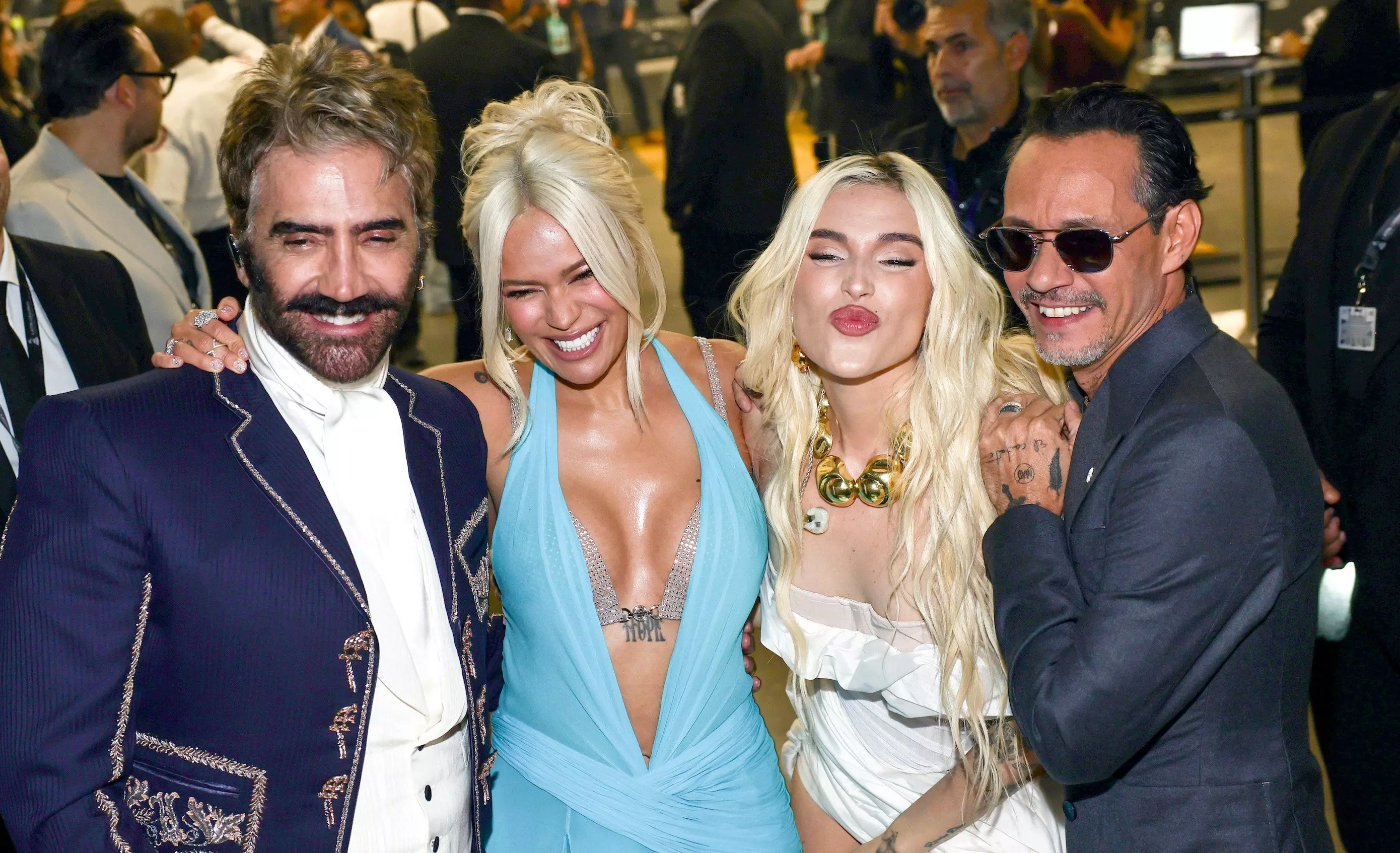
10 Meaningful Moments From The 2024 Latin GRAMMYs: Karol G's Heartfelt Speech, Tributes To Late Legends & More
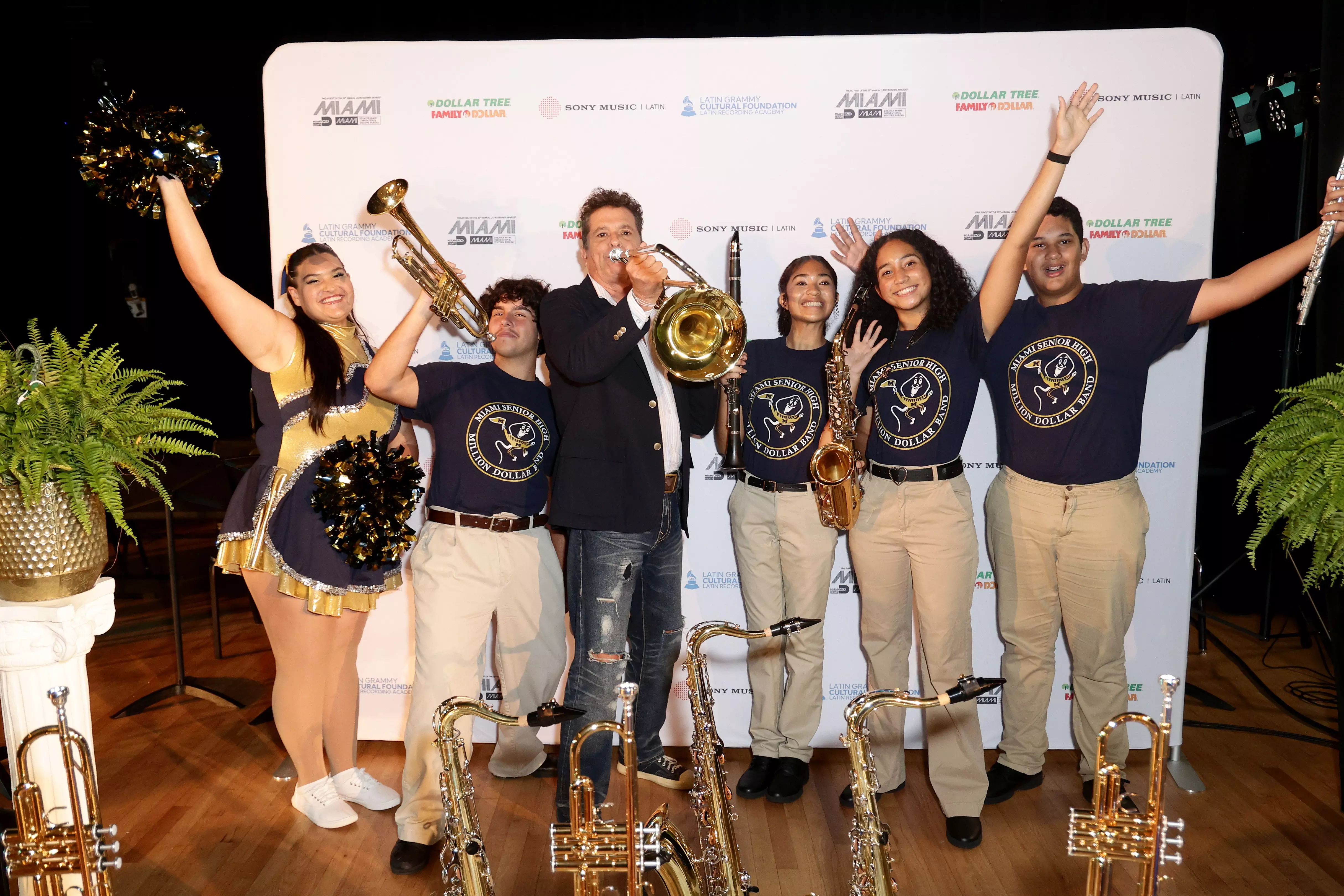
Behind The Scenes At Latin GRAMMY Week 2024: Inside VIP Celebrations & More
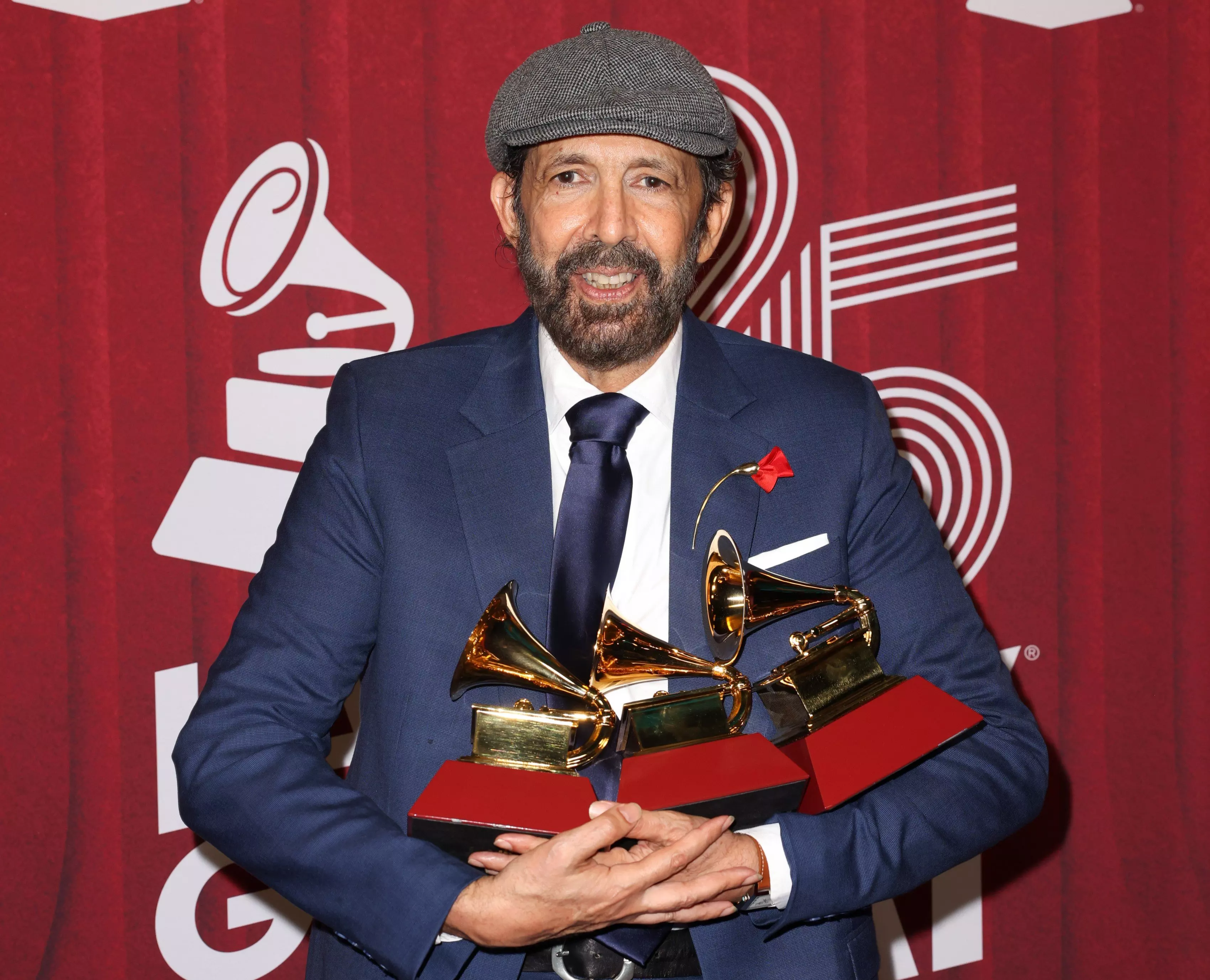
Juan Luis Guerra Sweeps The 2024 Latin GRAMMYs With 'Radio Güira'
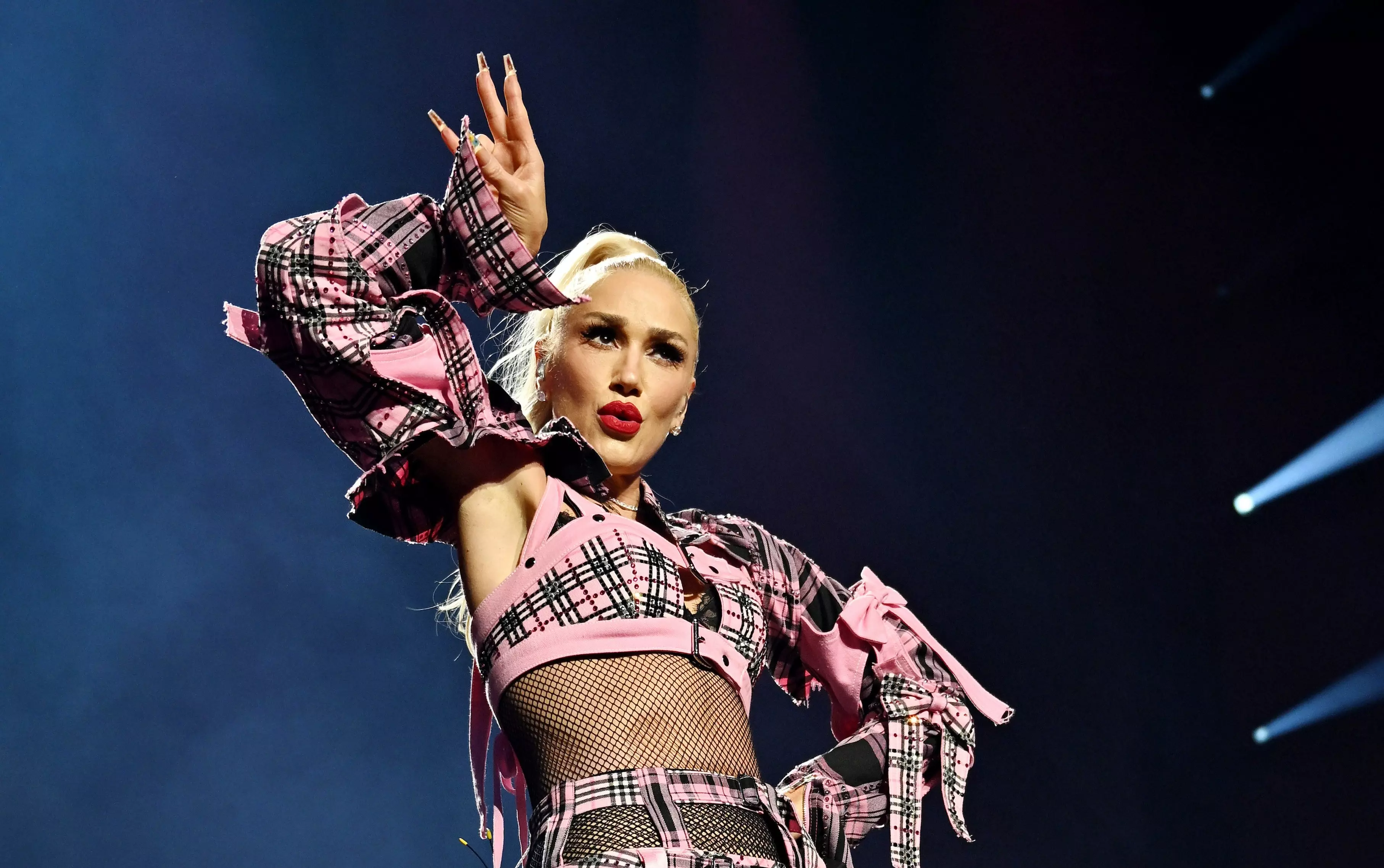
How Gwen Stefani's New Album 'Bouquet' Celebrates A Career Built On Love In All Its Forms
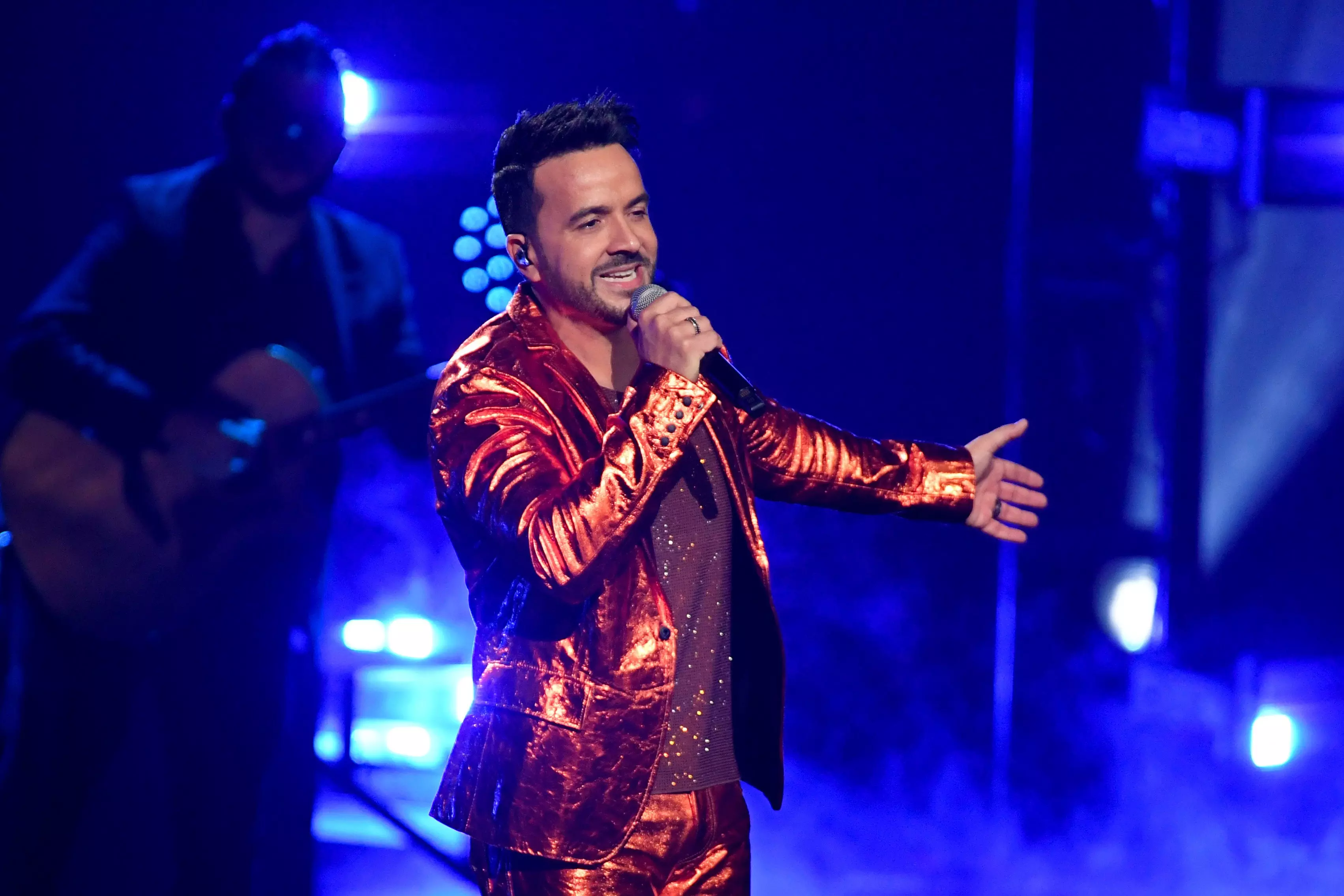
Watch: Luis Fonsi Performs "Despacito" & Two More Of His Classics At The 2024 Latin GRAMMYs
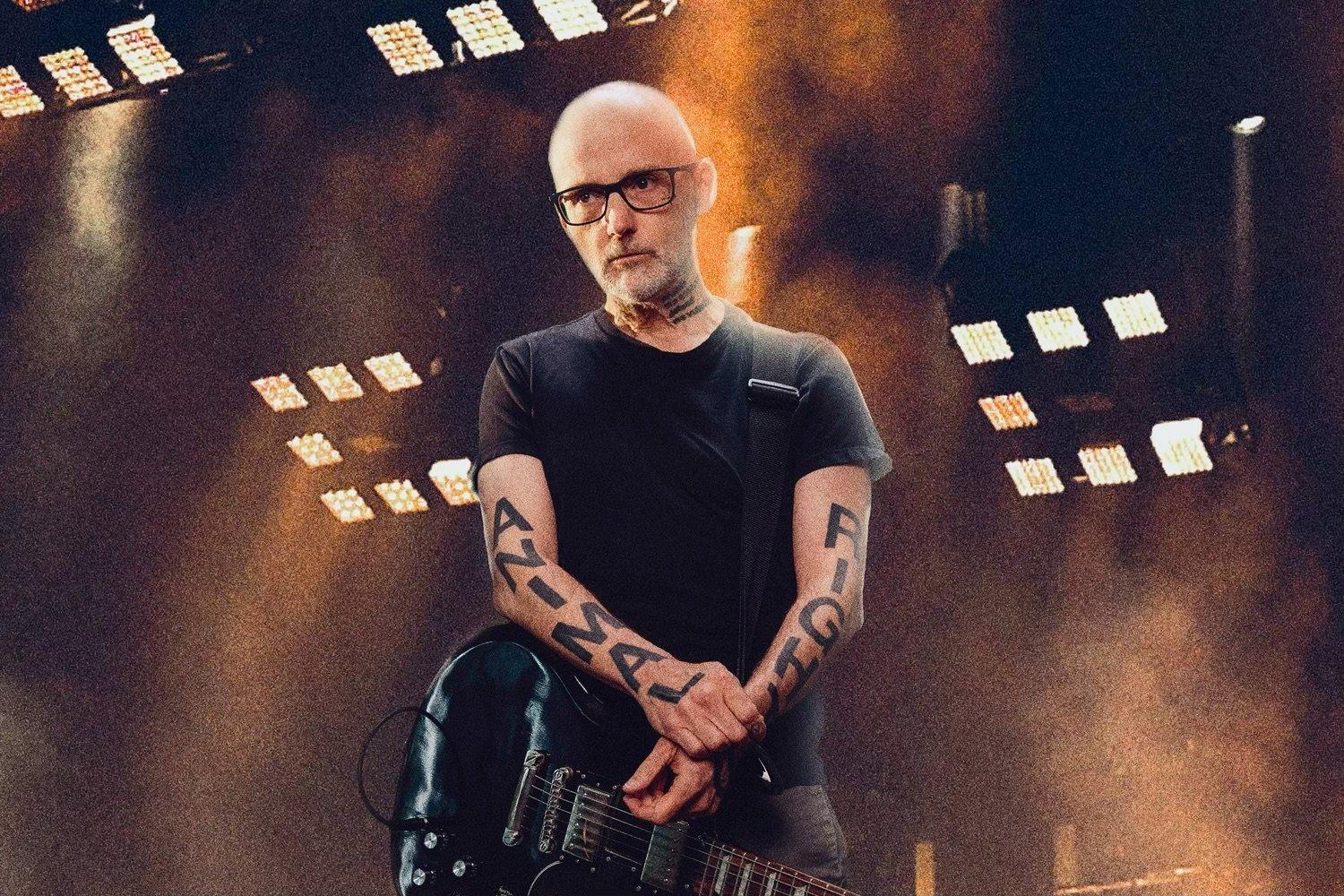
Photo: Mike Formanski
interview
"Let Yourself Be Idiosyncratic": Moby Talks New Album 'Always Centered At Night' & 25 Years Of 'Play'
"We're not writing for a pop audience, we don't need to dumb it down," Moby says of creating his new record. In an interview, the multiple-GRAMMY nominee reflects on his latest album and how it contrasts with his legendary release from 1999.
Moby’s past and present are converging in a serendipitous way. The multiple-GRAMMY nominee is celebrating the 25th anniversary of his seminal work, Play, the best-selling electronic dance music album of all time, and the release of his latest album, always centered at night.
Where Play was a solitary creation experience for Moby, always centered at night is wholly collaborative. Recognizable names on the album are Lady Blackbird on the blues-drenched "dark days" and serpentwithfeet on the emotive "on air." But always centered at night’s features are mainly lesser-known artists, such as the late Benjamin Zephaniah on the liquid jungle sounds of "where is your pride?" and Choklate on the slow grooves of "sweet moon."
Moby’s music proves to have staying power: His early ‘90s dance hits "Go" and "Next is the E" still rip up dancefloors; the songs on Play are met with instant emotional reactions from millennials who heard them growing up. Moby is even experiencing a resurgence of sorts with Gen Z. In 2023, Australian drum ‘n’ bass DJ/producer Luude and UK vocalist Issey Cross reimagined Moby’s classic "Porcelain" into "Oh My." Earlier this year, Moby released "You and Me" with Italian DJ/producer Anfisa Letyago.
Music is just one of Moby’s many creative ventures. He wrote and directed Punk Rock Vegan Movie as well as writing and starring in his homemade documentary, Moby Doc. The two films are produced by his production company, Little Walnut, which also makes music videos, shorts and the podcast "Moby Pod." Moby and co-host Lindsay Hicks have an eclectic array of guests, from actor Joe Manganiello to Ed Begley, Jr., Steve-O and Hunter Biden. The podcast interviews have led to "some of the most meaningful interpersonal experiences," Moby tells GRAMMY.com.
A upcoming episode of "Moby Pod" dedicated to Play was taped live over two evenings at Los Angeles’ Masonic Lodge at Hollywood Forever Cemetery. The episode focuses on Moby recounting his singular experiences around the unexpected success of that album — particularly considering the abject failure of his previous album, Animal Rights. The narrative was broken up by acoustic performances of songs from Play, as well as material from Always Centered at Night (which arrives June 14) with special guest Lady Blackbird. Prior to the taping, Moby spoke to GRAMMY.com about both albums.
'Always centered at night' started as a label imprint then became the title of your latest album. How did that happen?
I realized pretty quickly that I just wanted to make music and not necessarily worry about being a label boss. Why make more busy work for myself?
The first few songs were this pandemic process of going to SoundCloud, Spotify, YouTube and asking people for recommendations to find voices that I wasn’t familiar with, and then figuring out how to get in touch with them. The vast majority of the time, they would take the music I sent them and write something phenomenal.
That's the most interesting part of working with singers you've never met: You don't know what you're going to get. My only guidance was: Let yourself be creative, let yourself be idiosyncratic, let the lyrics be poetic. We're not writing for a pop audience, we don't need to dumb it down. Although, apparently Lady Blackbird is one of Taylor Swift's favorite singers.
Guiding the collaborators away from pop music is an unusual directive, although perhaps not for you?
What is both sad and interesting is pop has come to dominate the musical landscape to such an extent that it seems a lot of musicians don't know they're allowed to do anything else. Some younger people have grown up with nothing but pop music. Danaé Wellington, who sings "Wild Flame," her first pass of lyrics were pop. I went back to her and said, "Please be yourself, be poetic." And she said, "Well, that’s interesting because I’m the poet laureate of Manchester." So getting her to disregard pop lyrics and write something much more personal and idiosyncratic was actually easy and really special.
You certainly weren’t going in the pop direction when making 'Play,' but it ended up being an extremely popular album. Did you have a feeling it was going to blow up the way it did?
I have a funny story. I had a date in January 1999 in New York. We went out drinking and I had just gotten back the mastered version of Play. We're back at my apartment, and before our date became "grown up," we listened to the record from start to finish. She actually liked it. And I thought, Huh, that's interesting. I didn't think anyone was going to like this record.
You didn’t feel anything different during the making of 'Play?'
I knew to the core of my being that Play was going to be a complete, abject failure. There was no doubt in my mind whatsoever. It was going to be my last record and it was going to fail. That was the time of people going into studios and spending half a million dollars. It was Backstreet Boys and Limp Bizkit and NSYNC; big major label records that were flawlessly produced. Play was made literally in my bedroom.
I slept under the stairs like Harry Potter in my loft on Mott Street. I had one bedroom and that's where I made the record on the cheapest of cheap equipment held up literally on milk crates. Two of the songs were recorded to cassette, that's how cheap the record was. It was this weird record made by a has-been, a footnote from the early rave days. There was no world where I thought it was going to be even slightly successful. Daniel Miller from Mute said — and I remember this very clearly — "I think this record might sell over 50,000 copies." And I said, "That’s kind of you to say but let's admit that this is going to be a failure. Thank you for releasing my last record."
Was your approach in making 'Play' different from other albums?
The record I had made before Play, Animal Rights, was this weird, noisy metal punk industrial record that almost everybody hated. I remember this moment so vividly: I was playing Glastonbury in 1998 and it was one of those miserable Glastonbury years. When it's good, it's paradise; it's really special. But the first time I played, it was disgusting, truly. A foot and a half of mud everywhere, incessant rain and cold. I was telling my manager that I wanted to make another punk rock metal record. And he said the most gentle thing, "I know you enjoy making punk rock and metal. People really enjoy when you make electronic music."
The way he said it, he wasn't saying, "You would help your career by making electronic music." He simply said, "People enjoy it." If I had been my manager, I would have said, "You're a f—ing idiot. Everyone hated that record. What sort of mental illness and masochism is compelling you to do it again?" Like Freud said, the definition of mental illness is doing the same thing and expecting different results. But his response was very emotional and gentle and sweet, and that got through to me. I had this moment where I realized, I can make music that potentially people will enjoy that will make them happy. Why not pursue that?
That was what made me not spend my time in ‘98 making an album inspired by Sepultura and Pantera and instead make something more melodic and electronic.
After years of swearing off touring, what’s making you hit stages this summer?
I love playing live music. If you asked me to come over and play Neil Young songs in your backyard, I would say yes happily, in a second. But going on tour, the hotels and airports and everything, I really dislike it.
My manager tricked me. He found strategically the only way to get me to go on tour was to give the money to animal rights charities. My philanthropic Achilles heel. The only thing that would get me to go on tour. It's a brief tour of Europe, pretty big venues, which is interesting for an old guy, but when the tour ends, I will have less money than when the tour begins.
Your DJ sets are great fun. Would you consider doing DJ dates locally?
Every now and then I’ll do something. But there’s two problems. As I've become very old and very sober, I go to sleep at 9 p.m. This young guy I was helping who was newly sober, he's a DJ. He was doing a DJ set in L.A. and he said, "You should come down. There's this cool underground scene." I said, "Great! What time are you playing?" And he said "I’m going on at 1 a.m." By that point I've been asleep for almost five hours.
I got invited to a dinner party recently that started at 8 p.m. and I was like, "What are you on? Cocaine in Ibiza? You're having dinner at 8 p.m. What craziness is that? That’s when you're putting on your soft clothes and watching a '30 Rock' rerun before bed. That's not going out time." And the other thing is, unfortunately, like a lot of middle aged or elderly musicians, I have a little bit of tinnitus so I have to be very cautious around loud music.
Are you going to write a third memoir at any point?
Only when I figure out something to write. It's definitely not going to be anecdotes about sobriety because my anecdotes are: woke up at 5 a.m., had a smoothie, read The New York Times, lamented the fact that people are voting for Trump, went for a hike, worked on music, played with Bagel the dog, worked on music some more went to sleep, good night. It would be so repetitive and boring.
It has to be something about lived experience and wisdom. But I don't know if I've necessarily gotten to the point where I have good enough lived experience and wisdom to share with anyone. Maybe if I get to that point, I'll probably be wrong, but nonetheless, that would warrant maybe writing another book.
Machinedrum's New Album '3FOR82' Taps Into The Spirit Of His Younger Years

